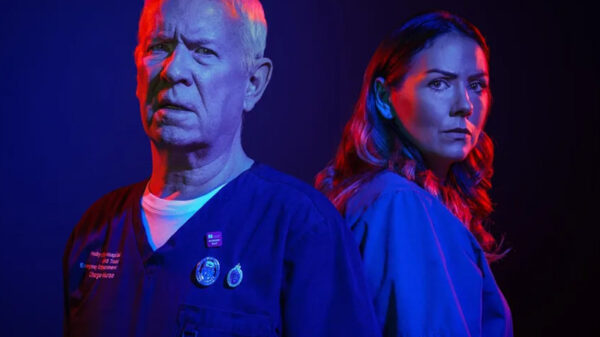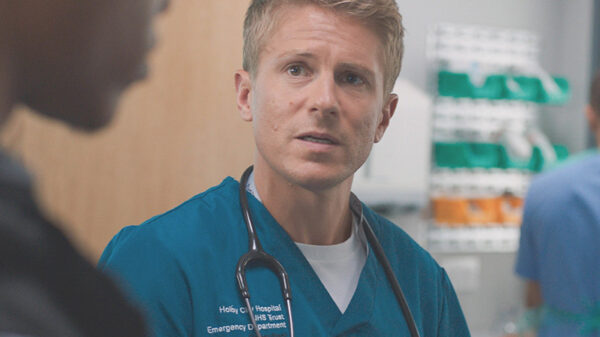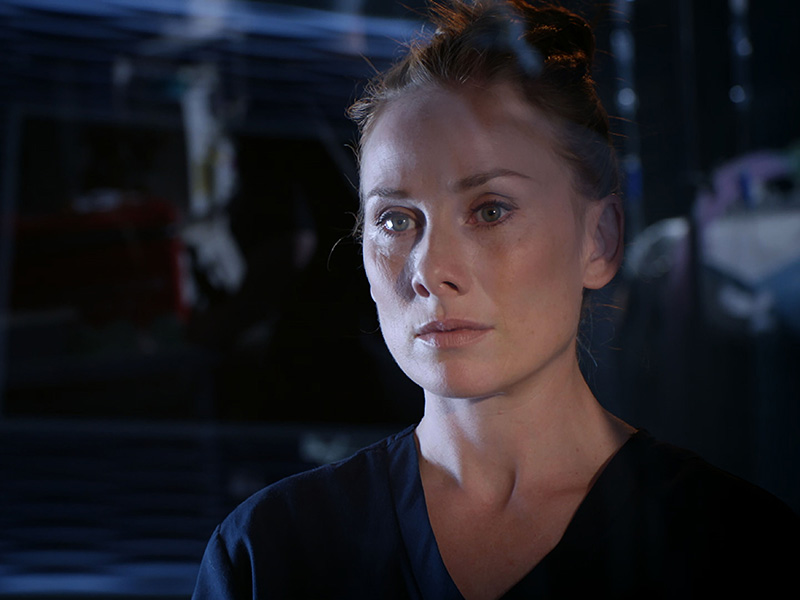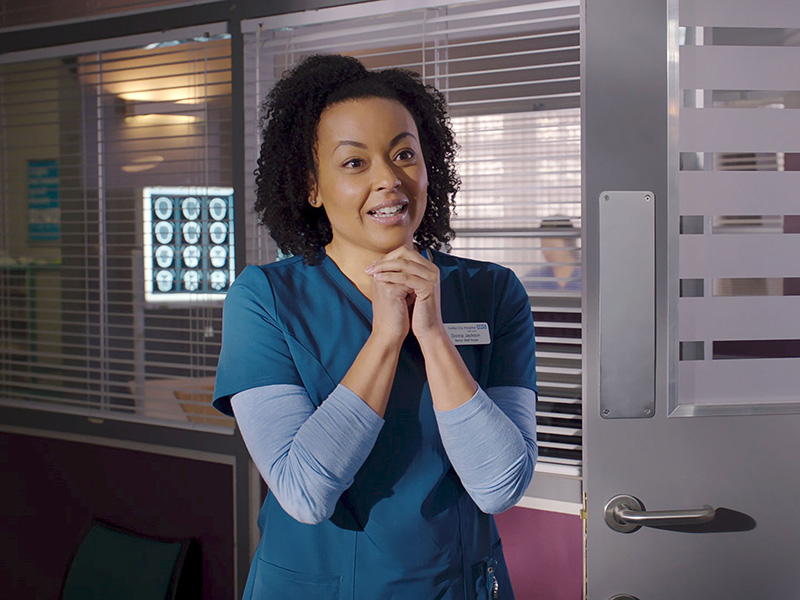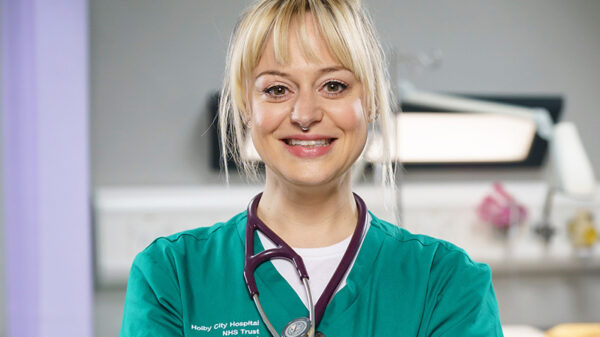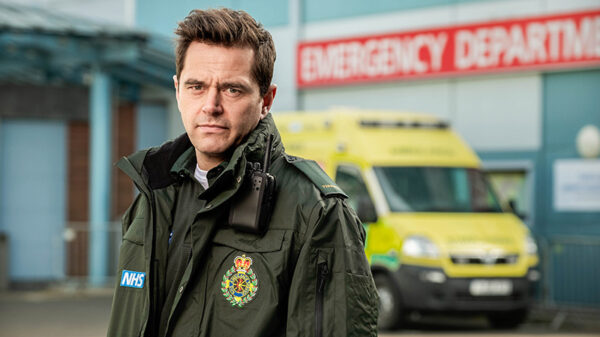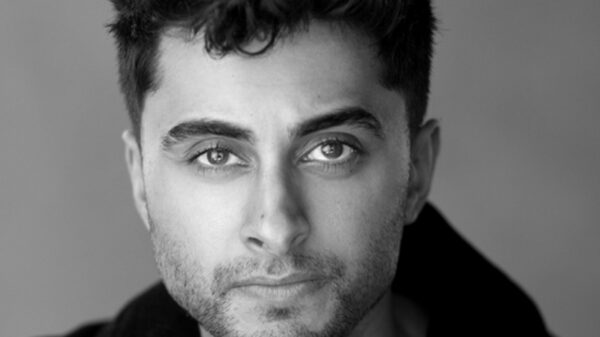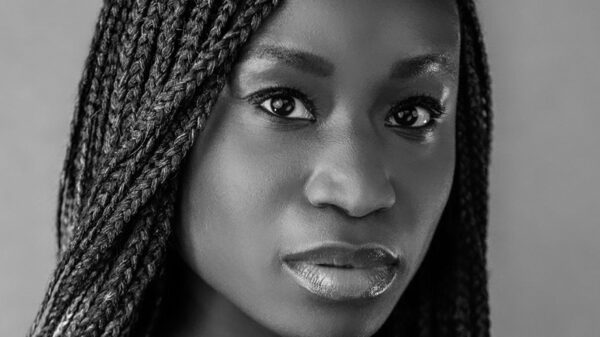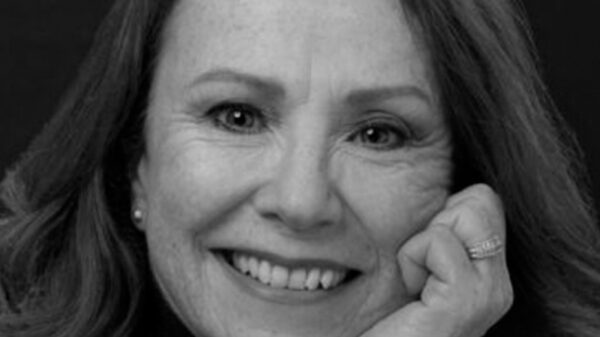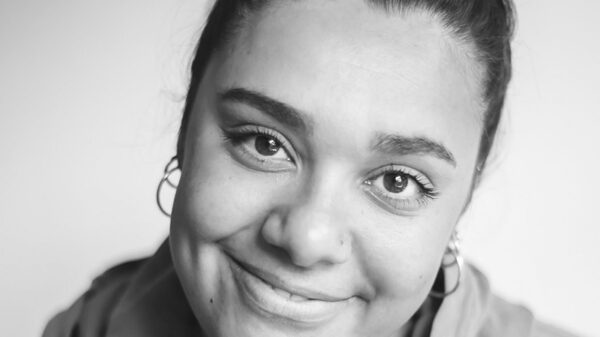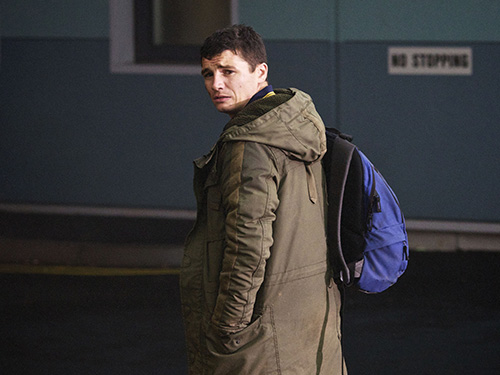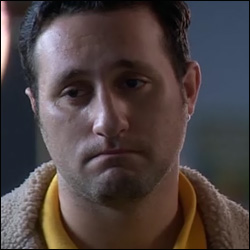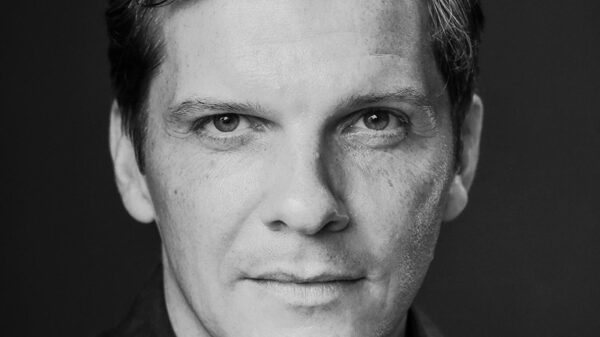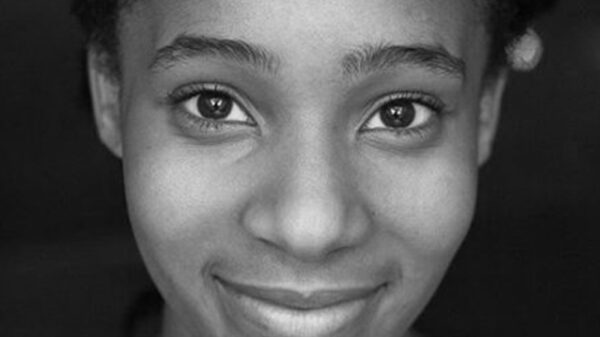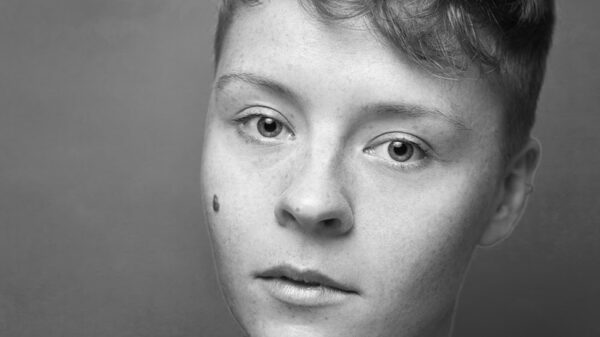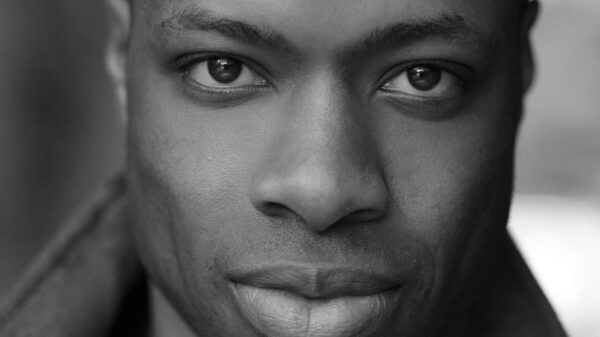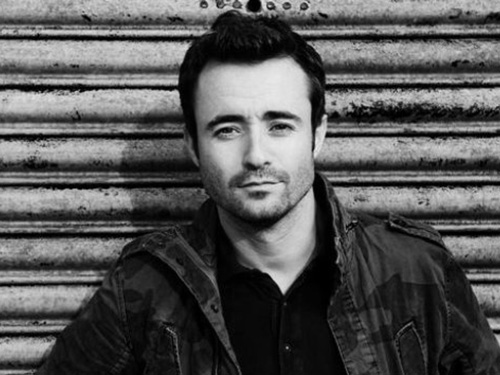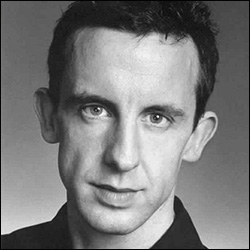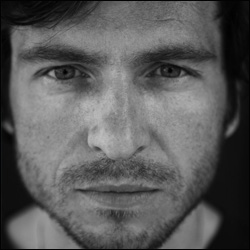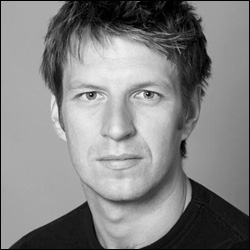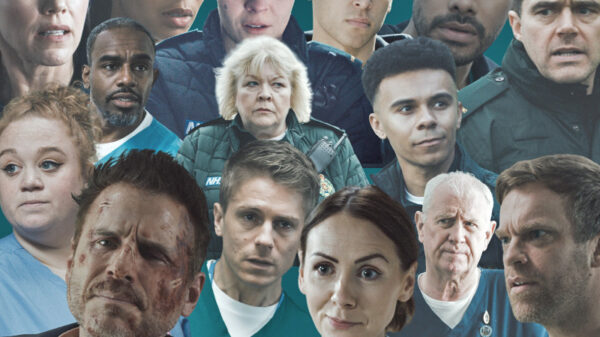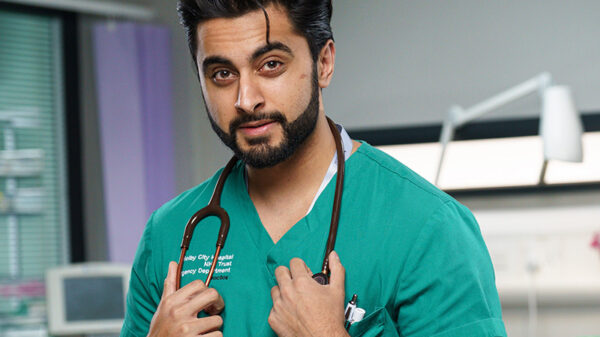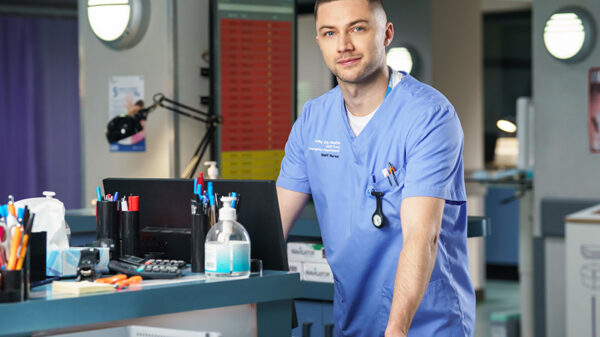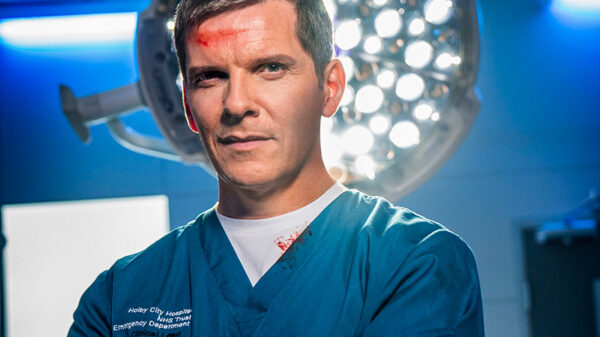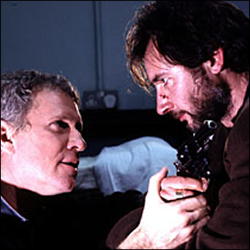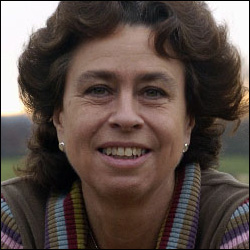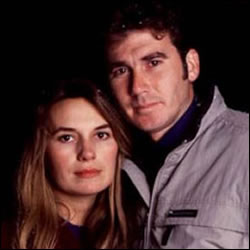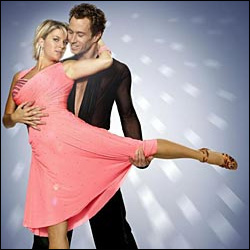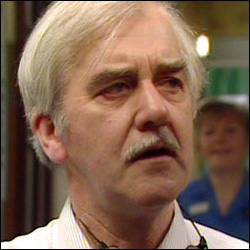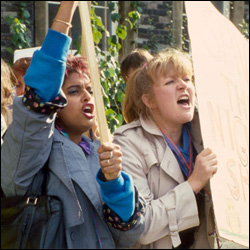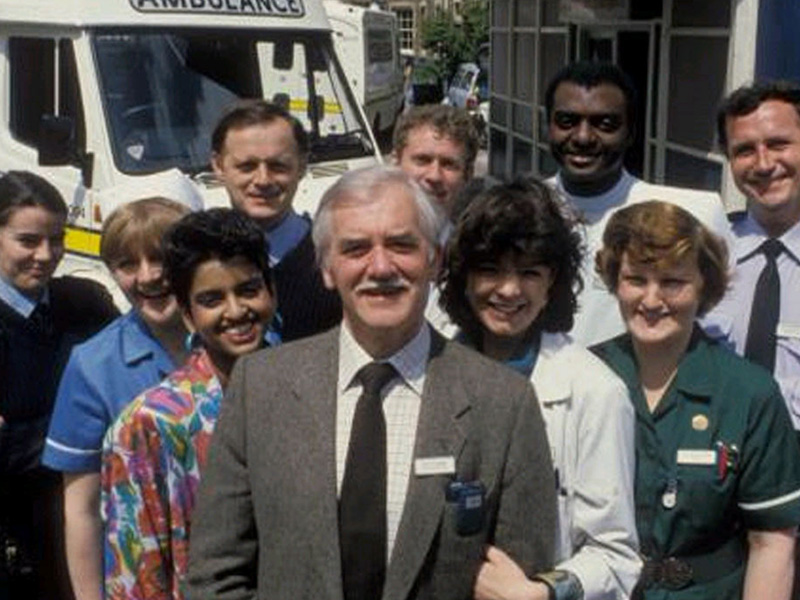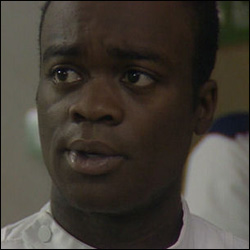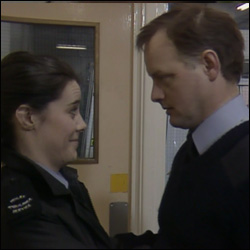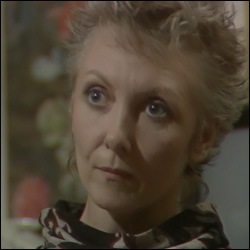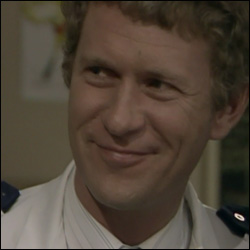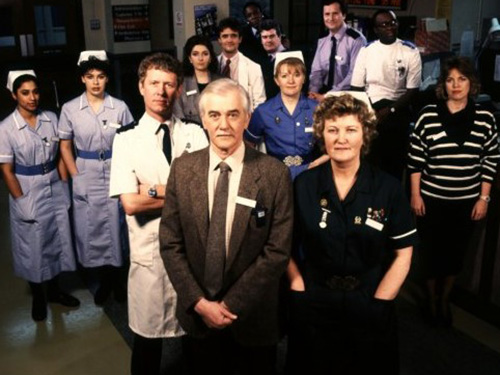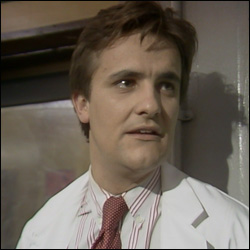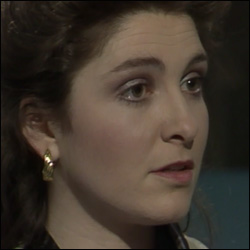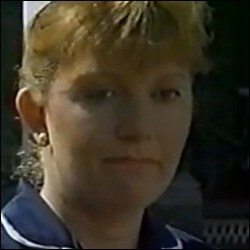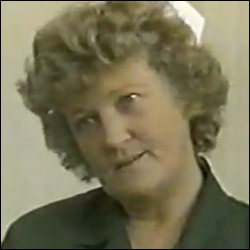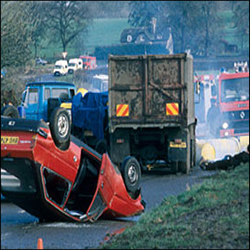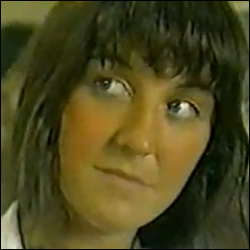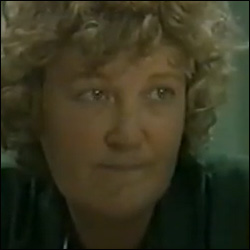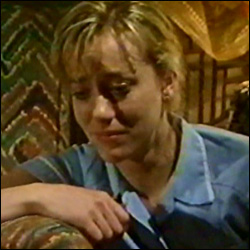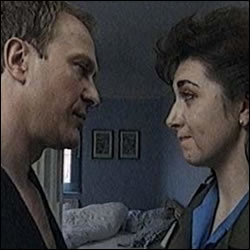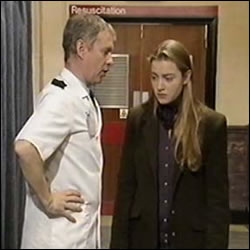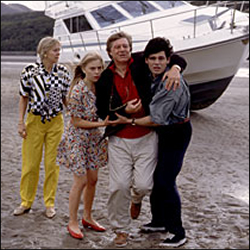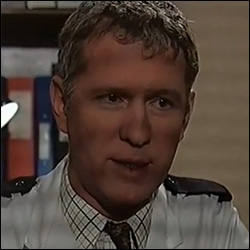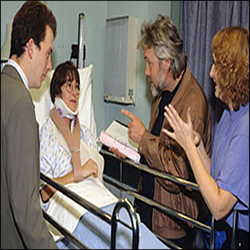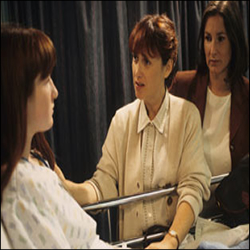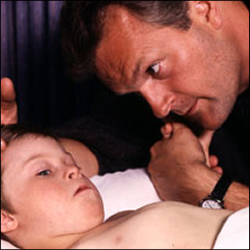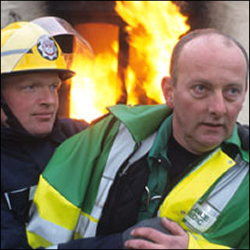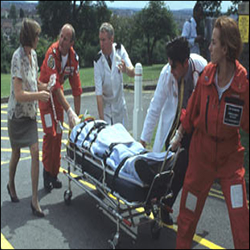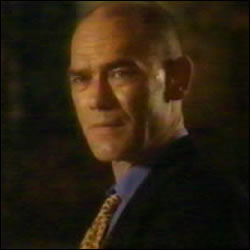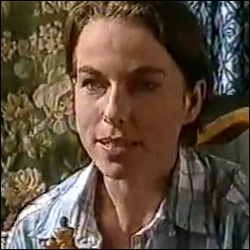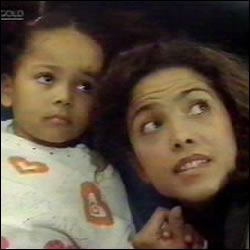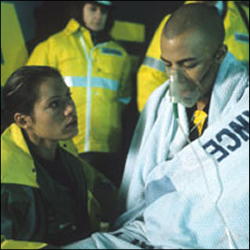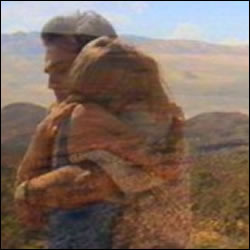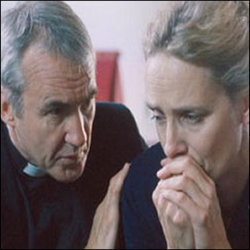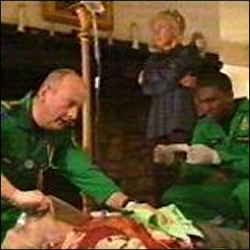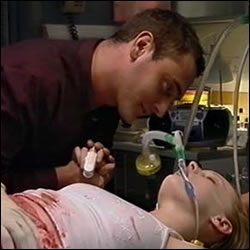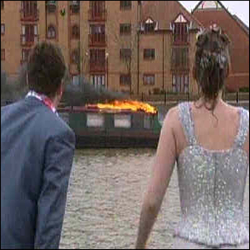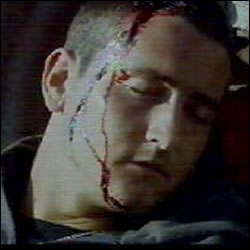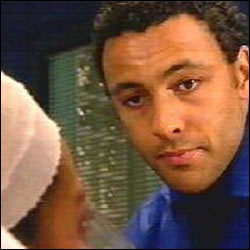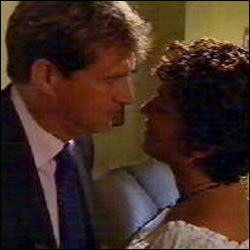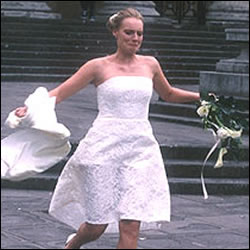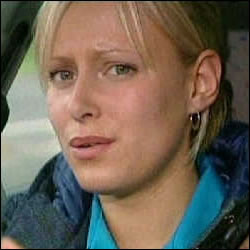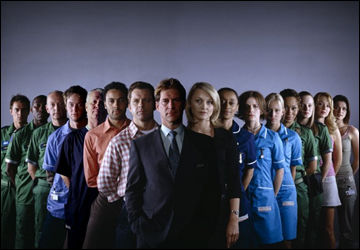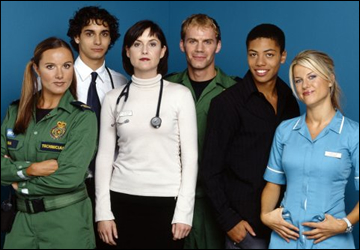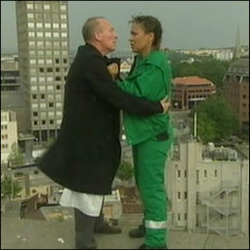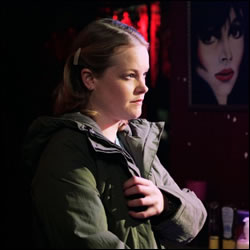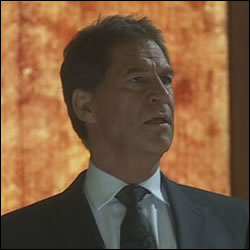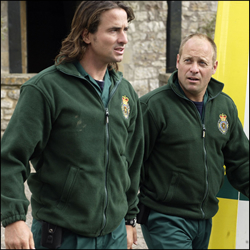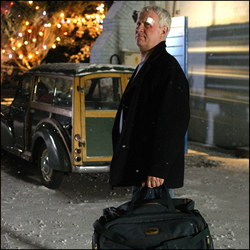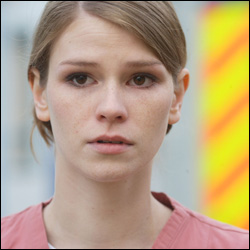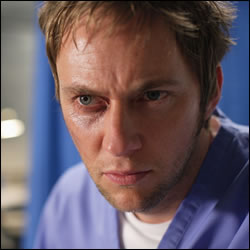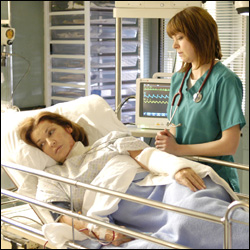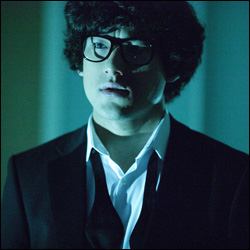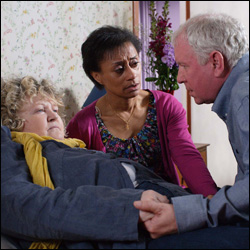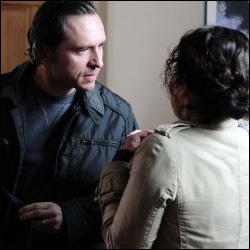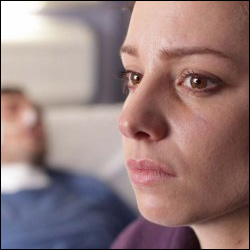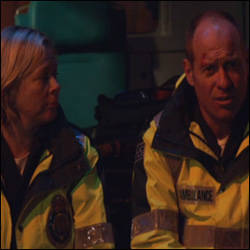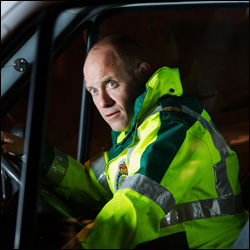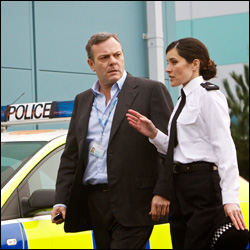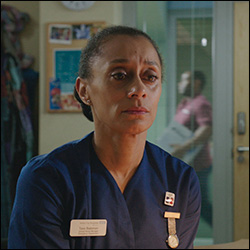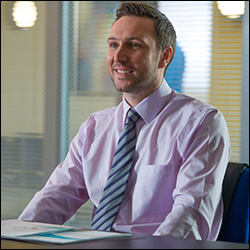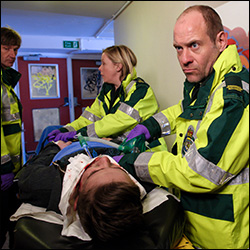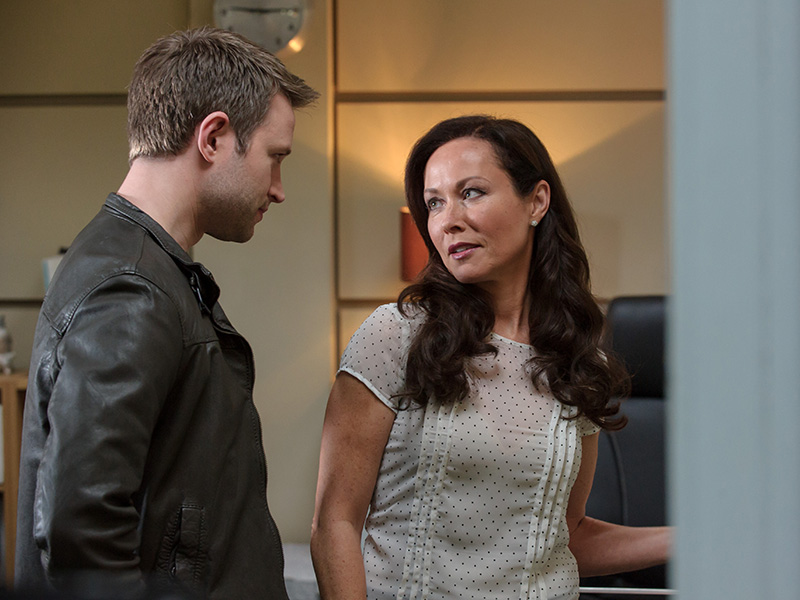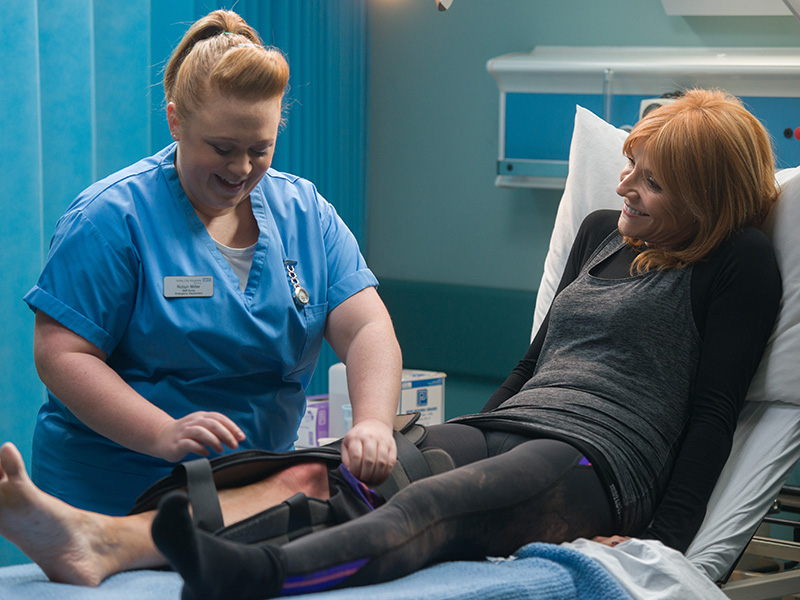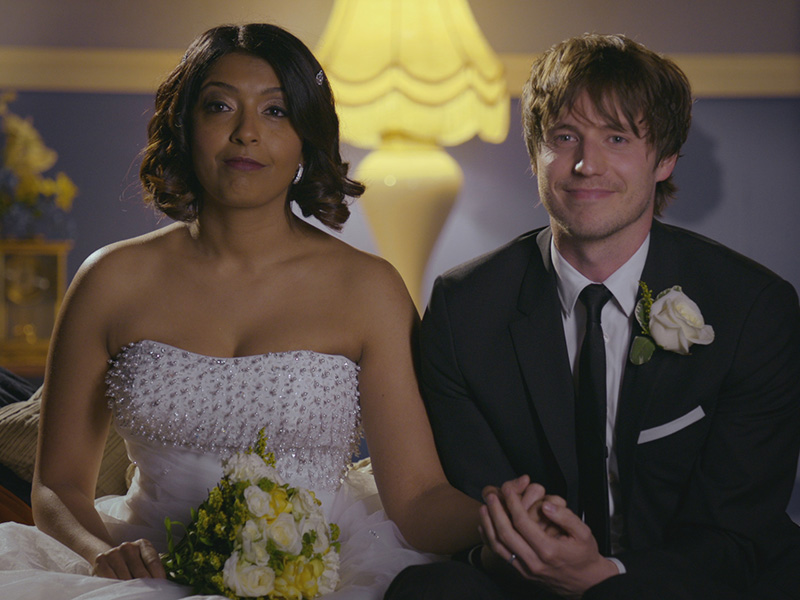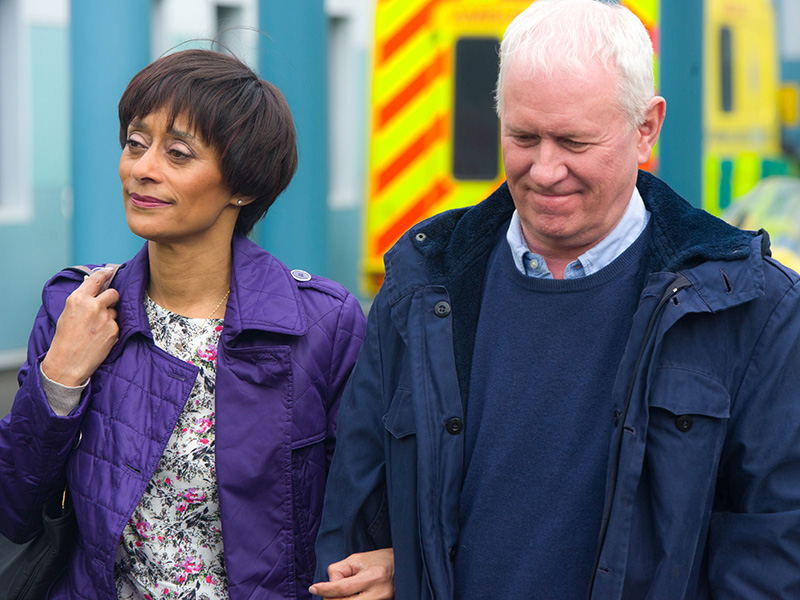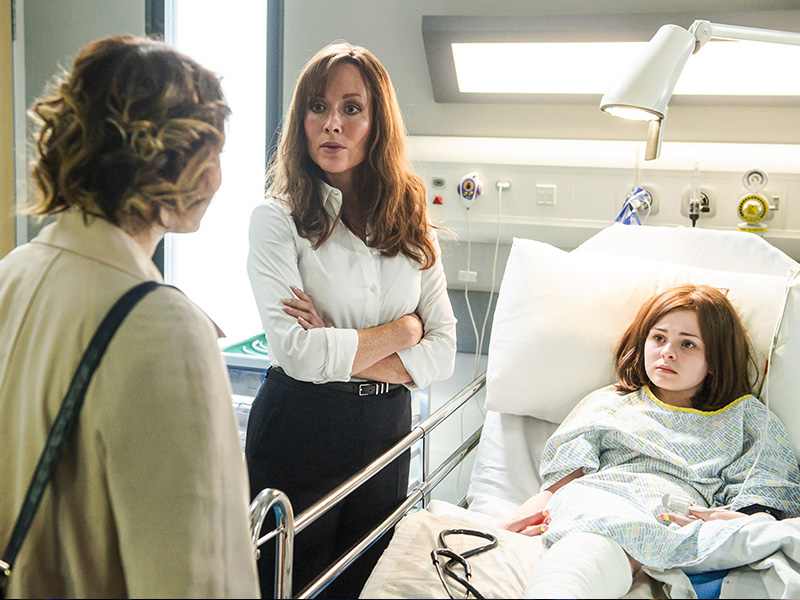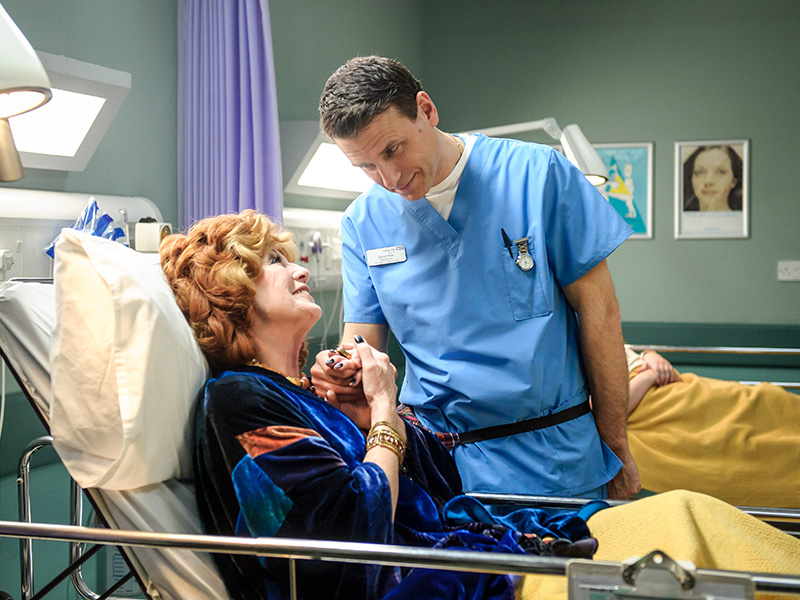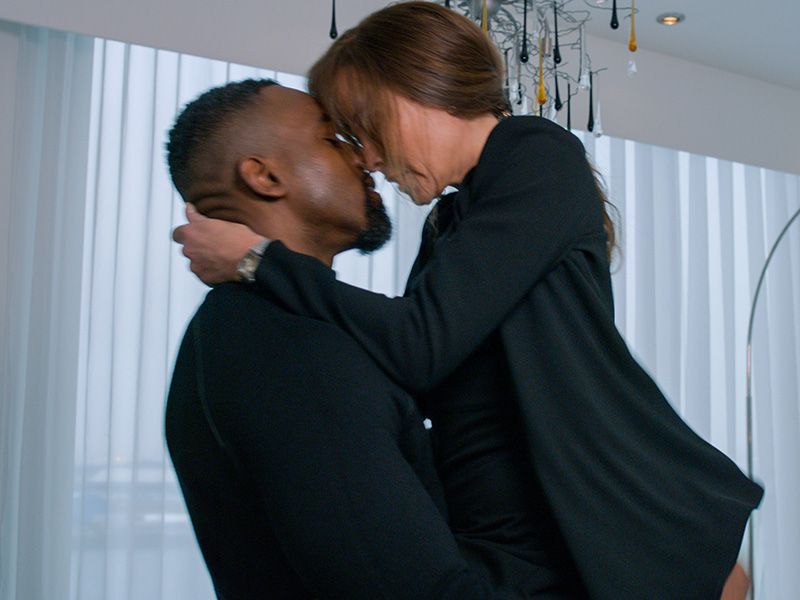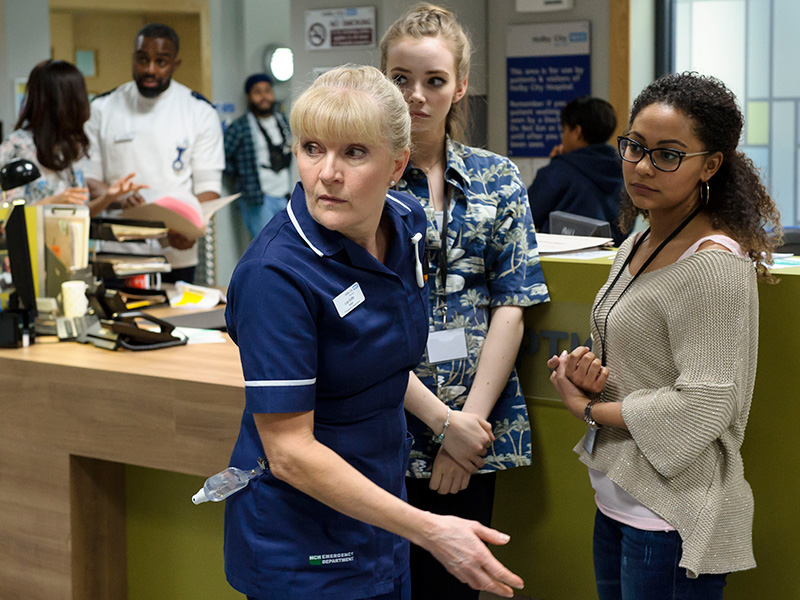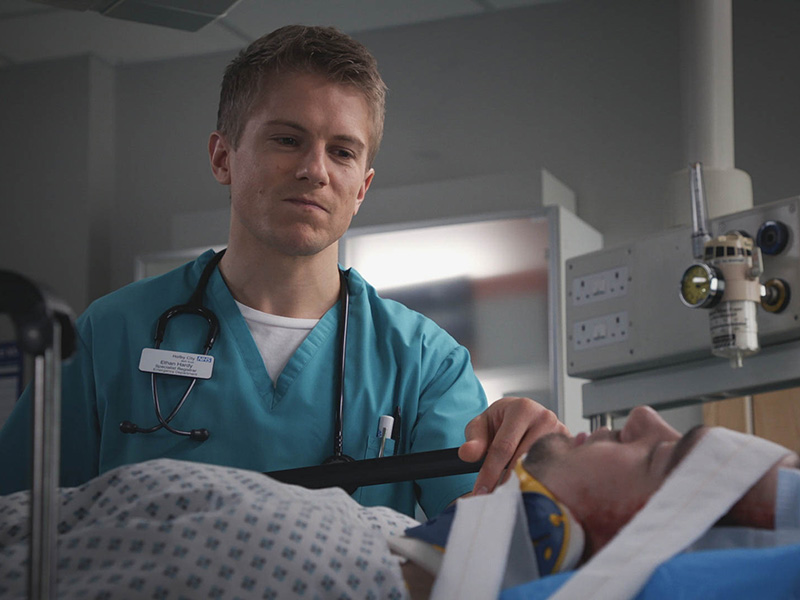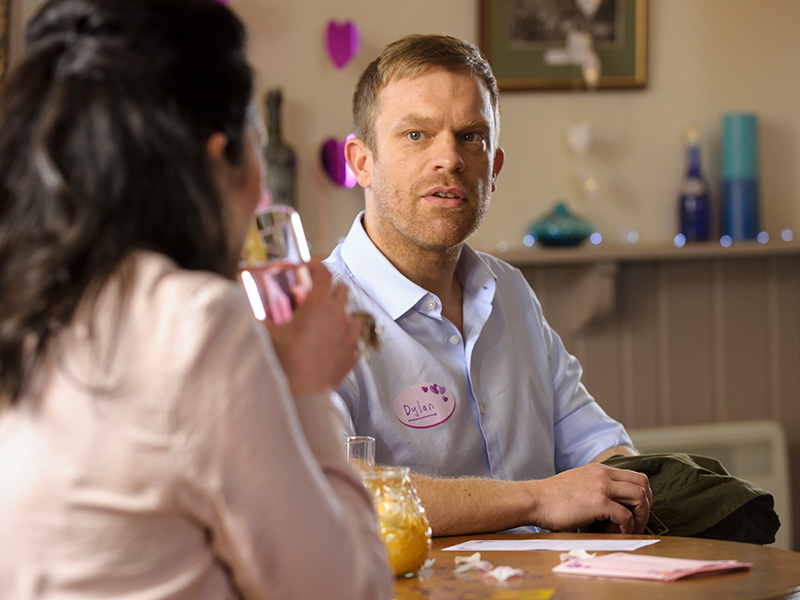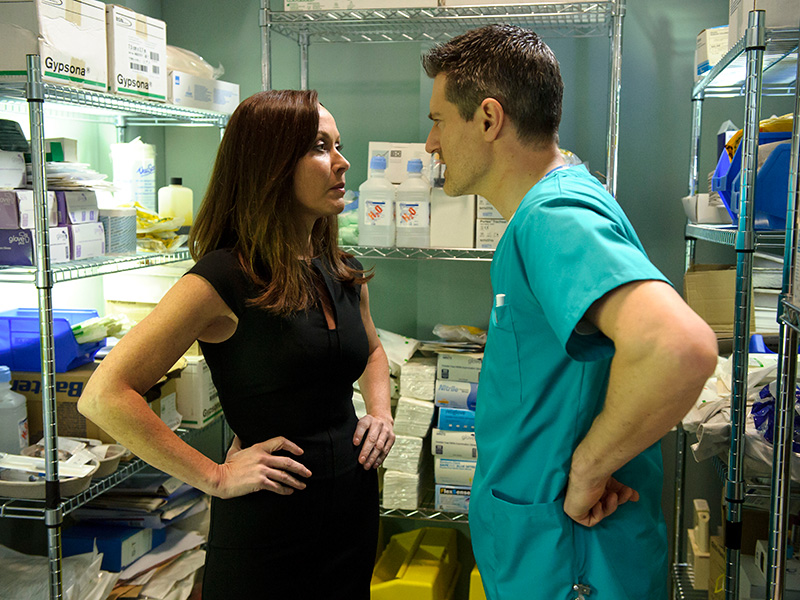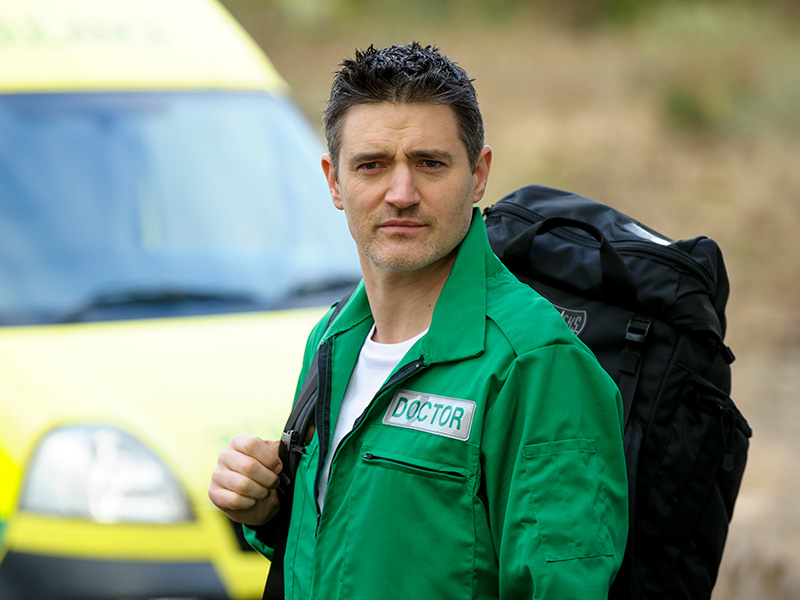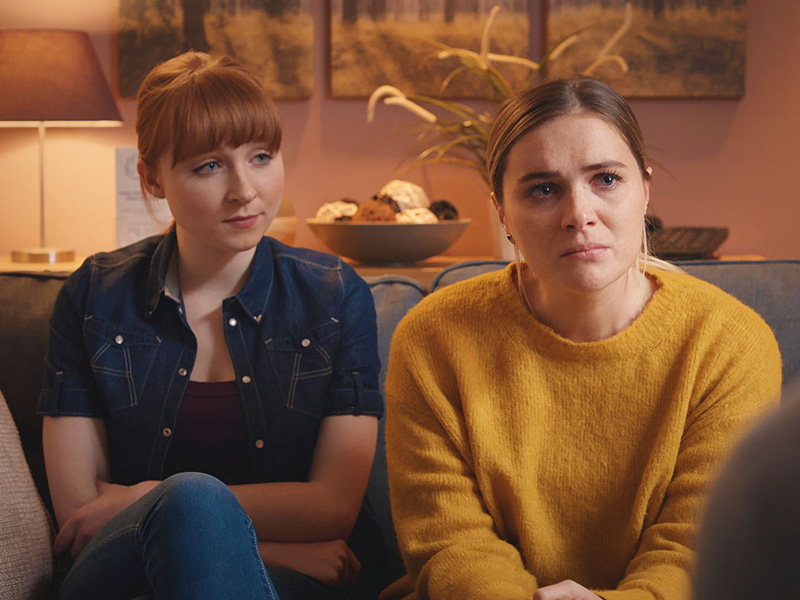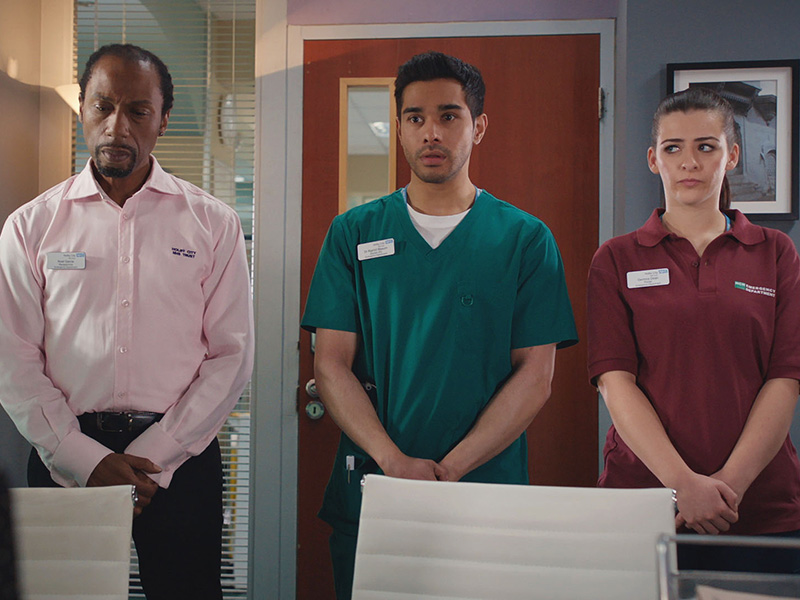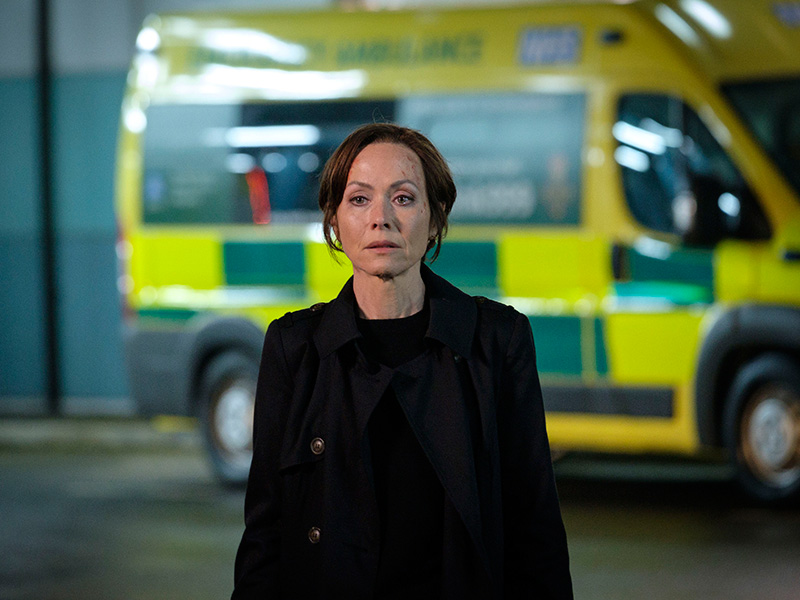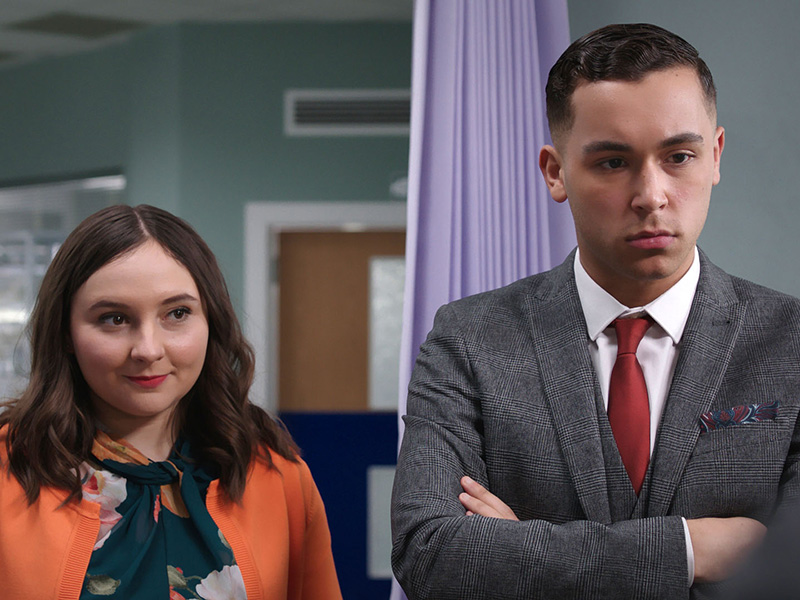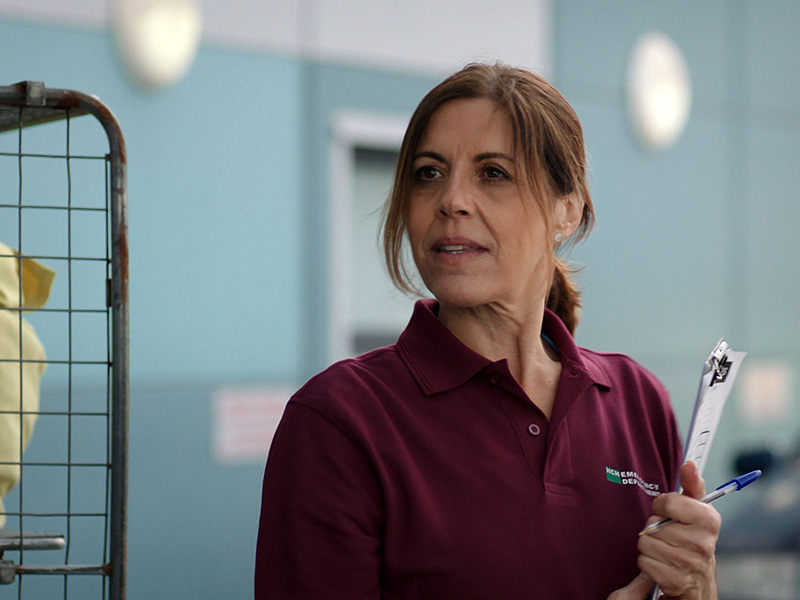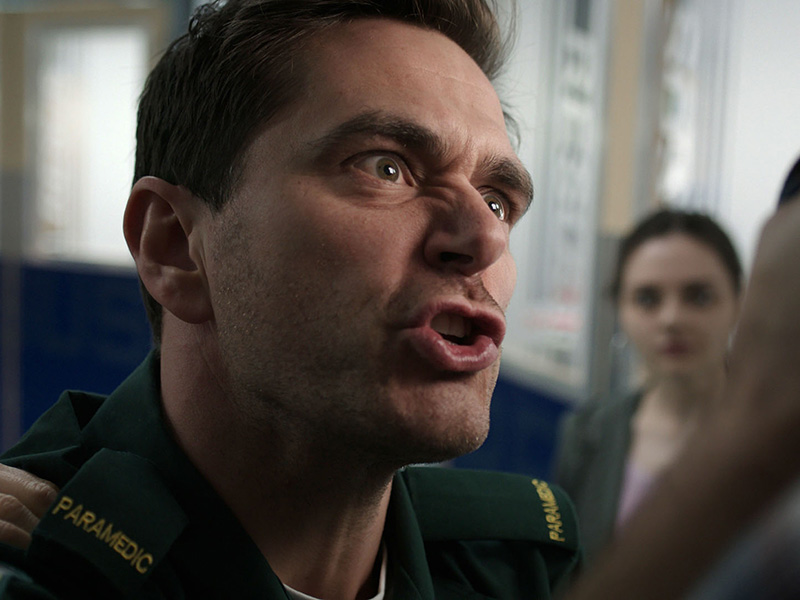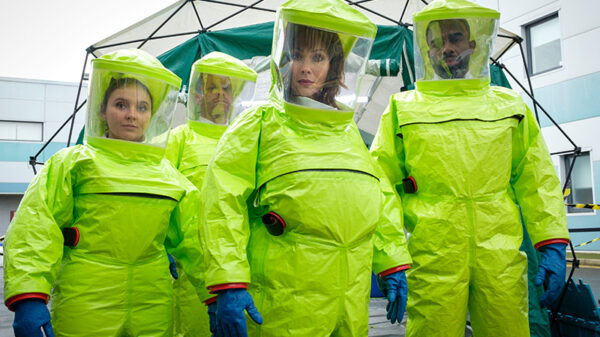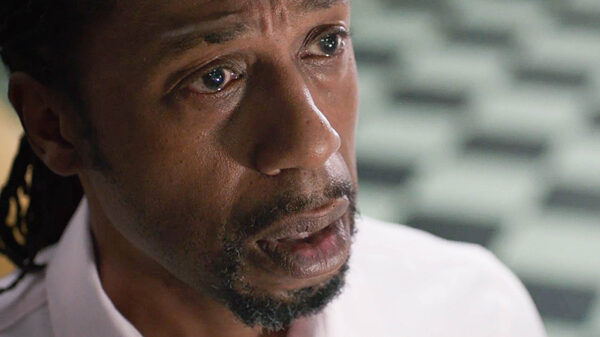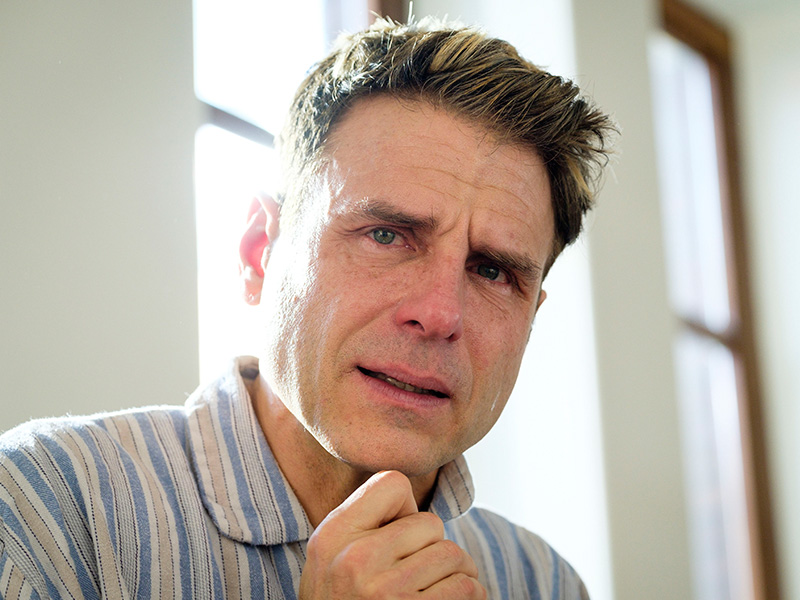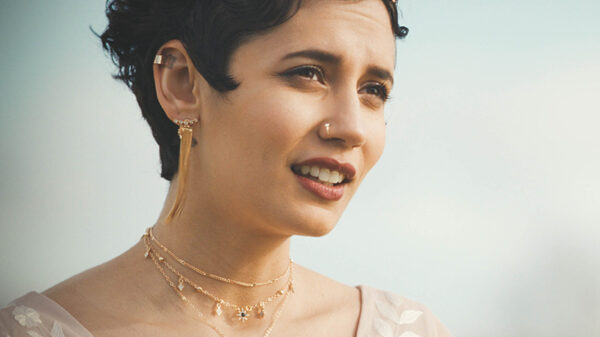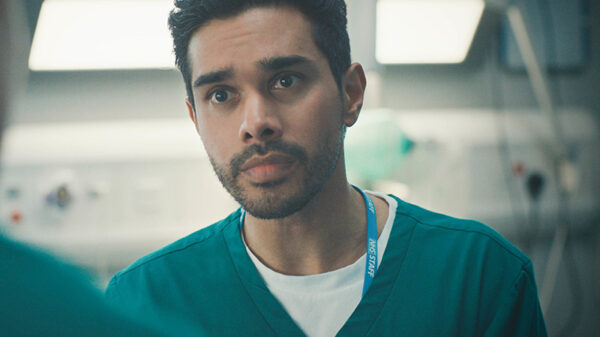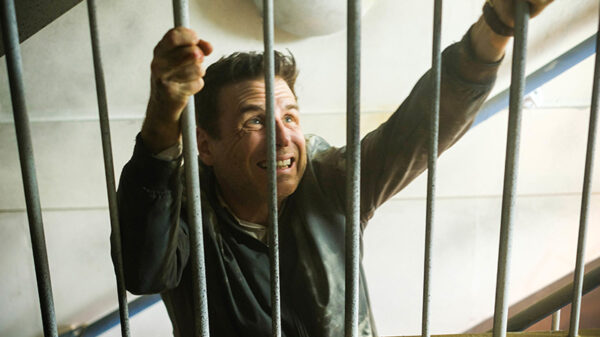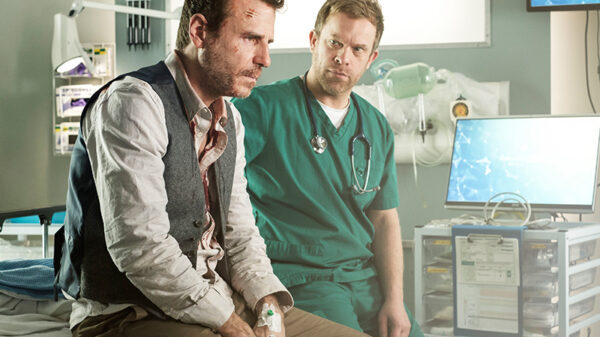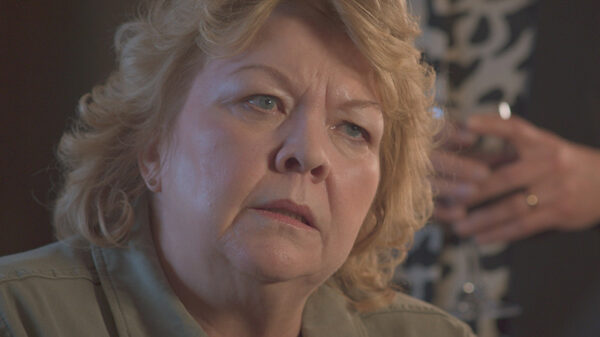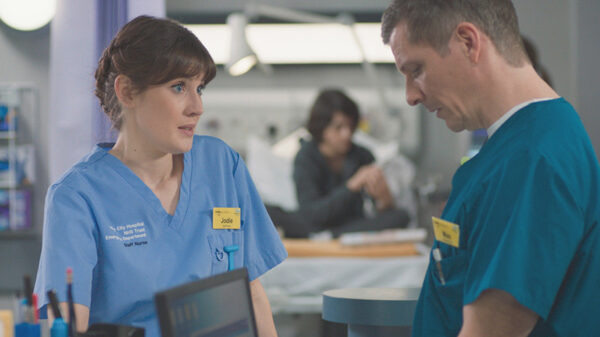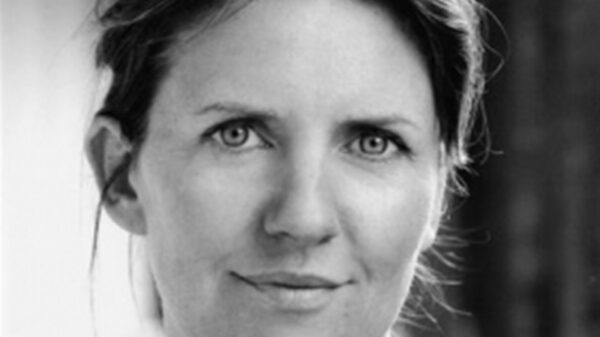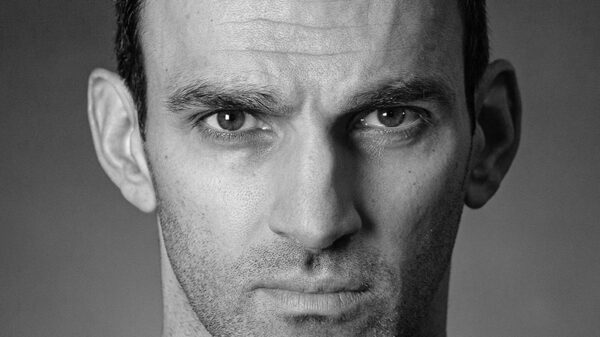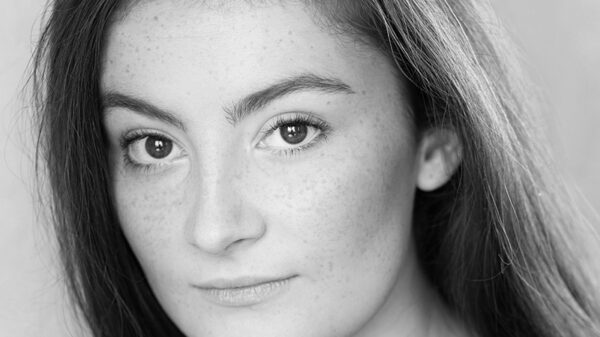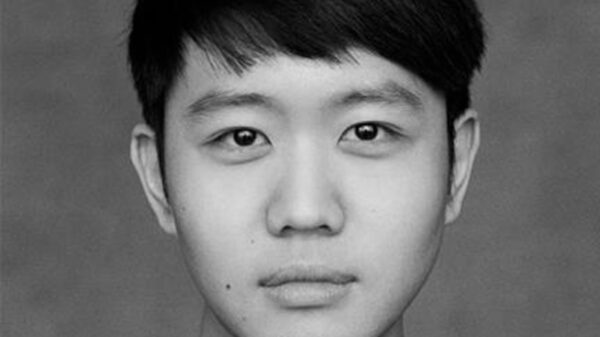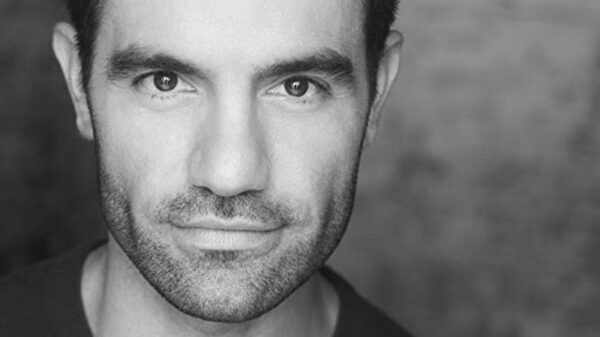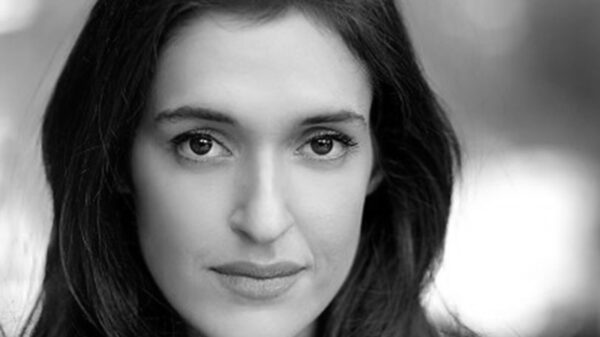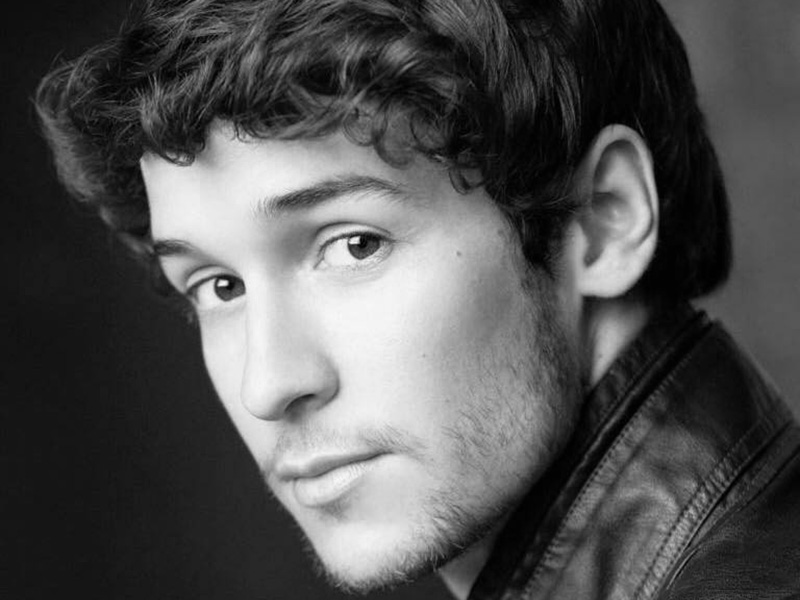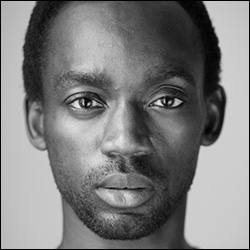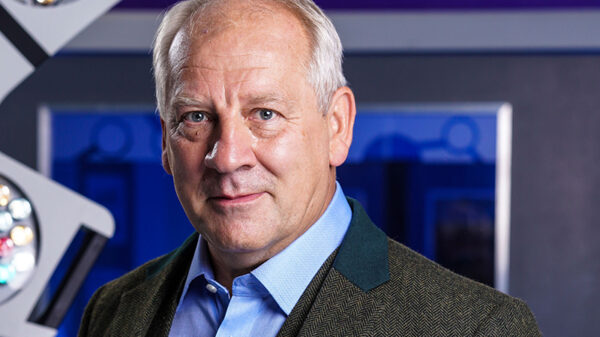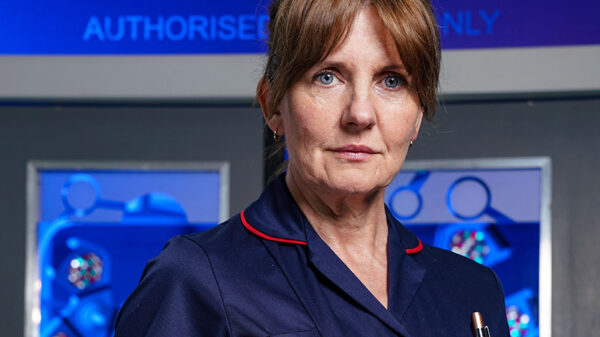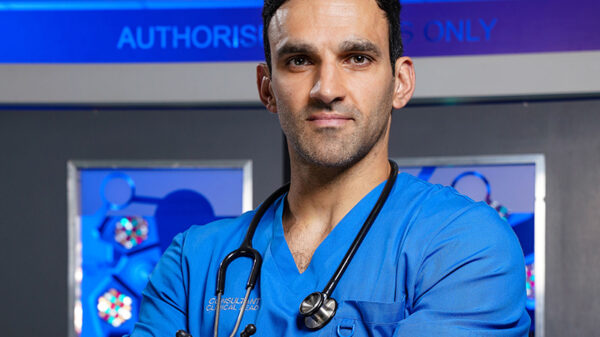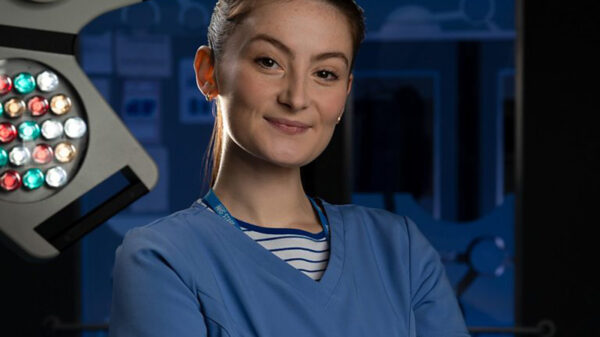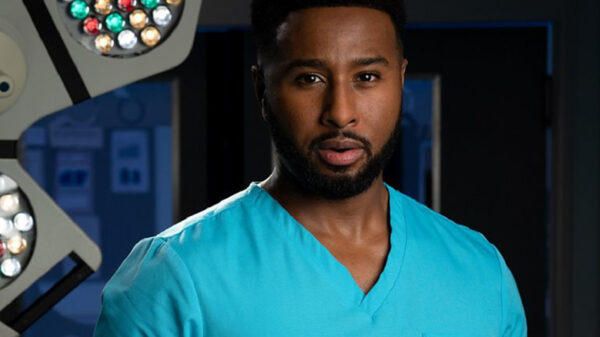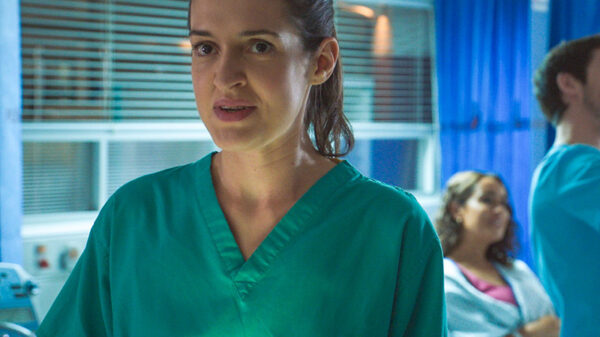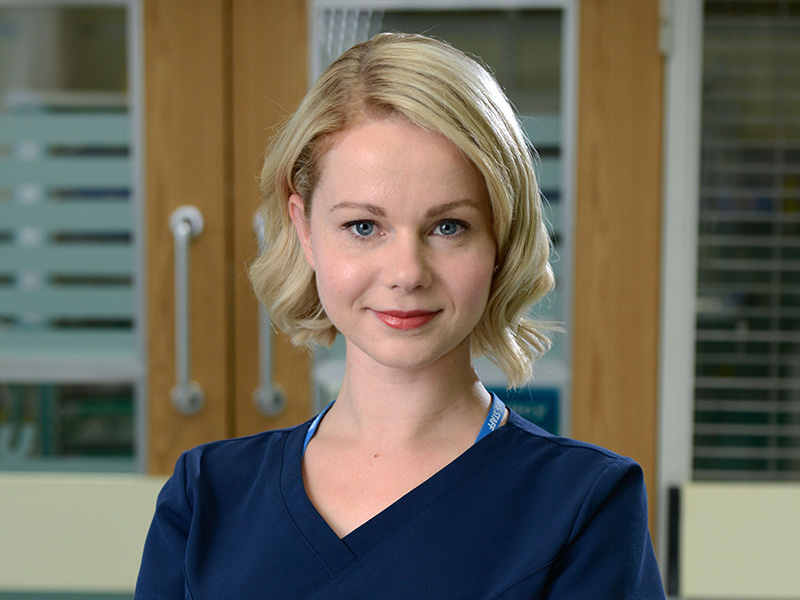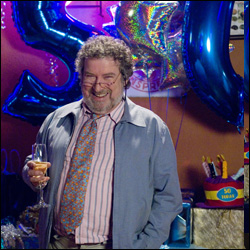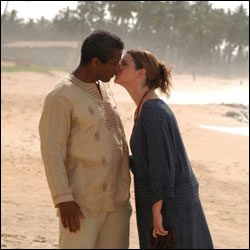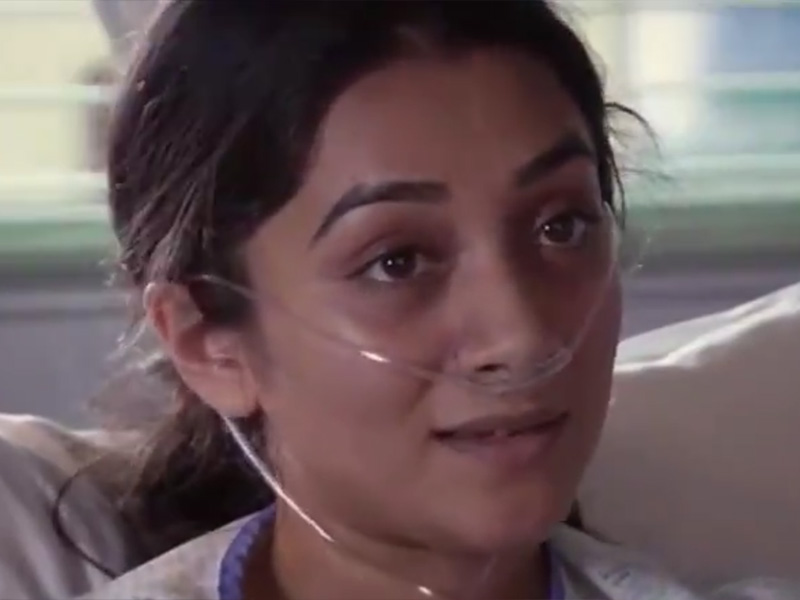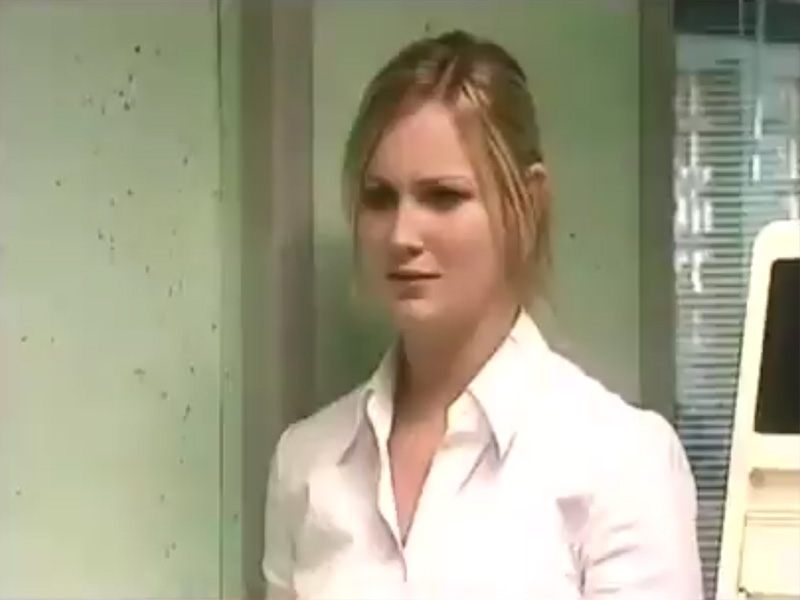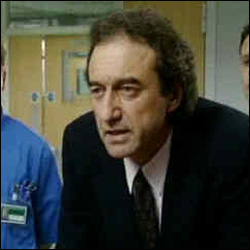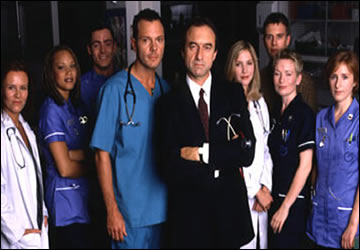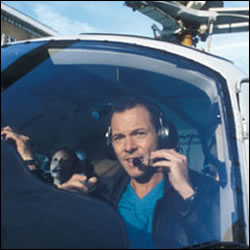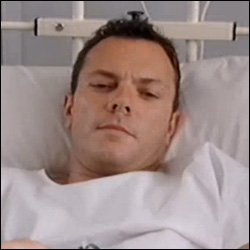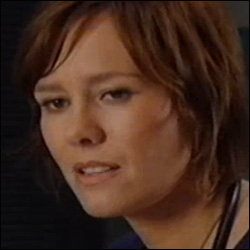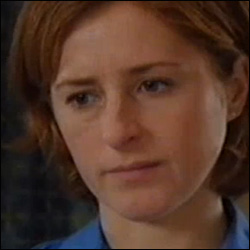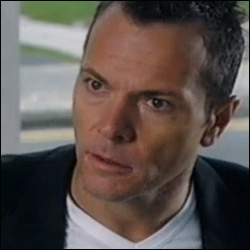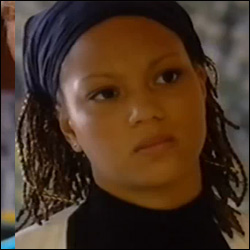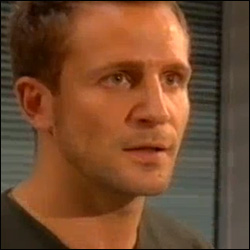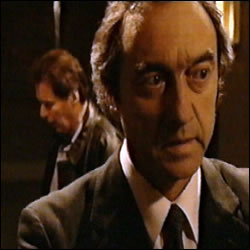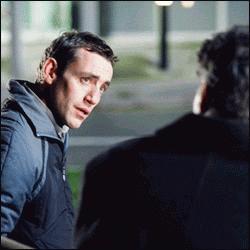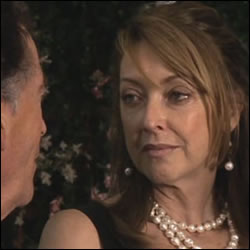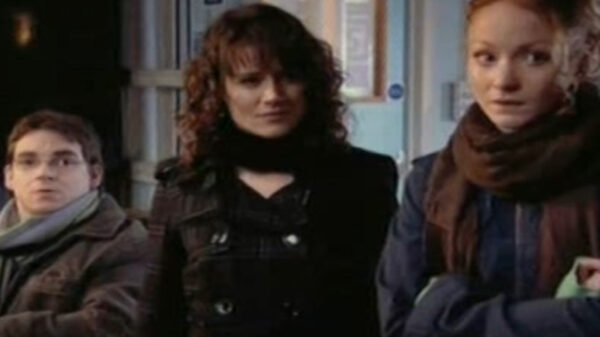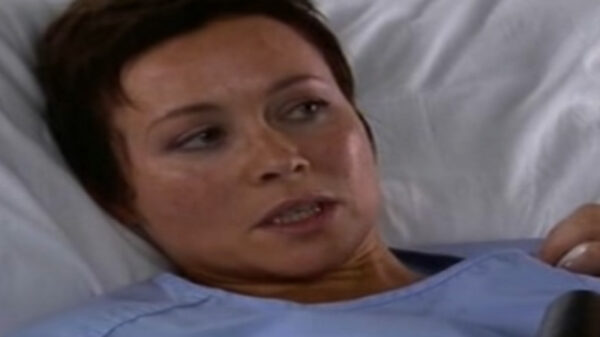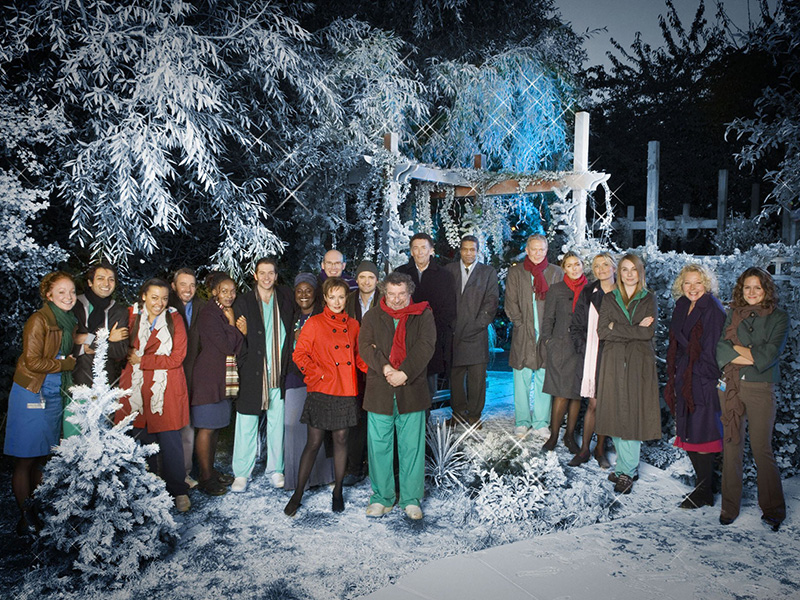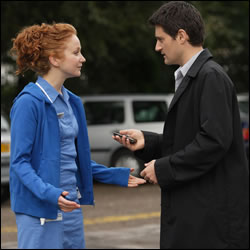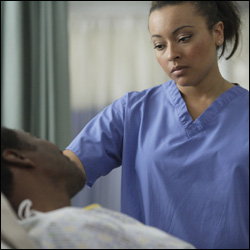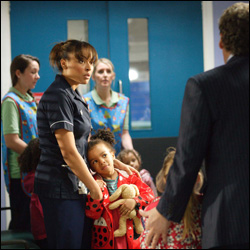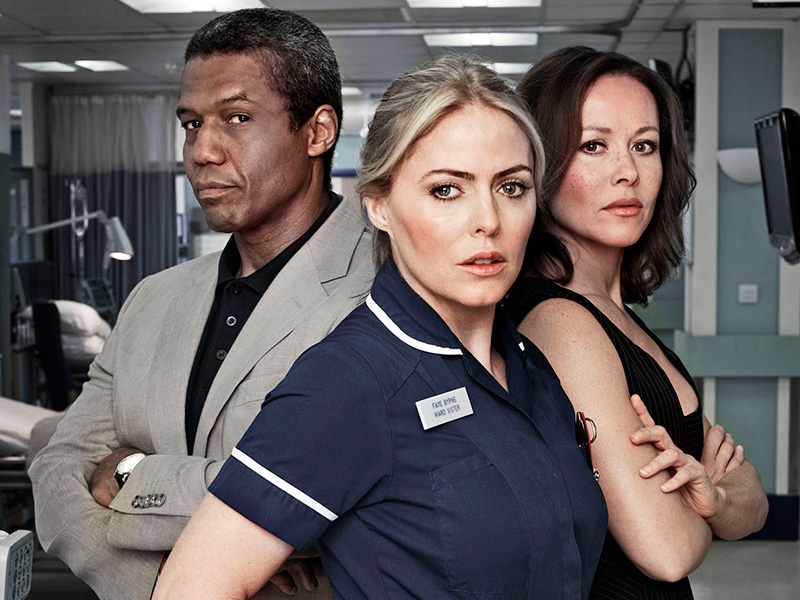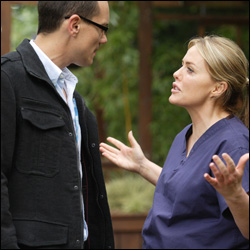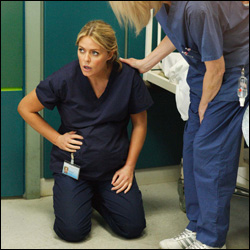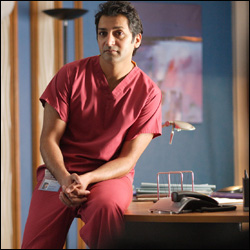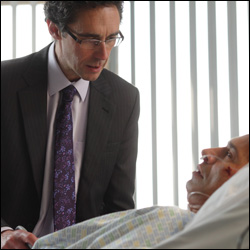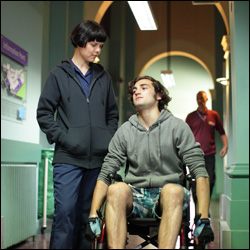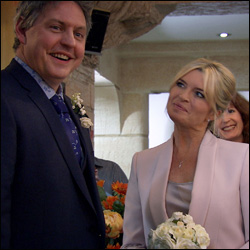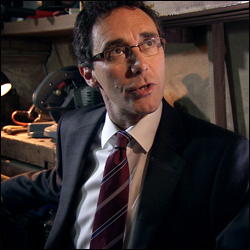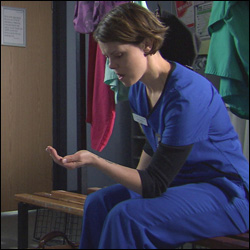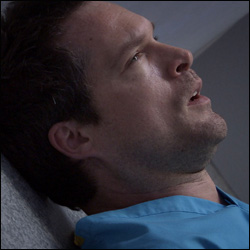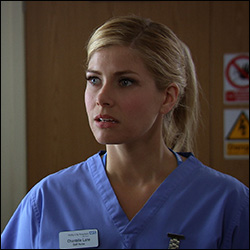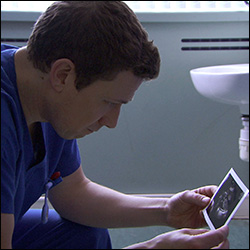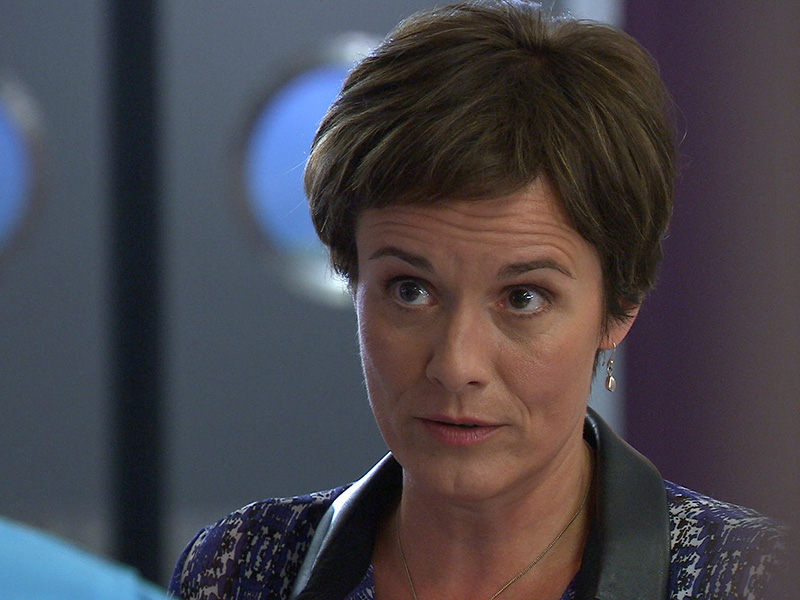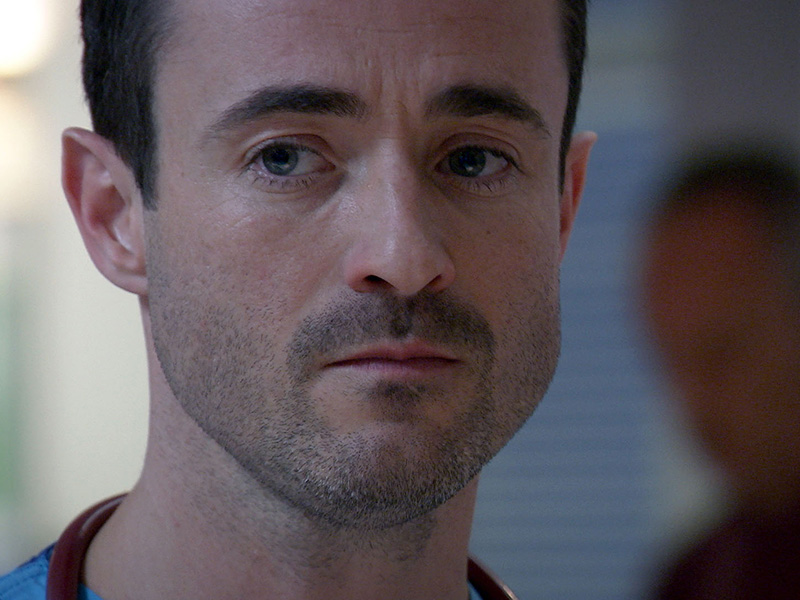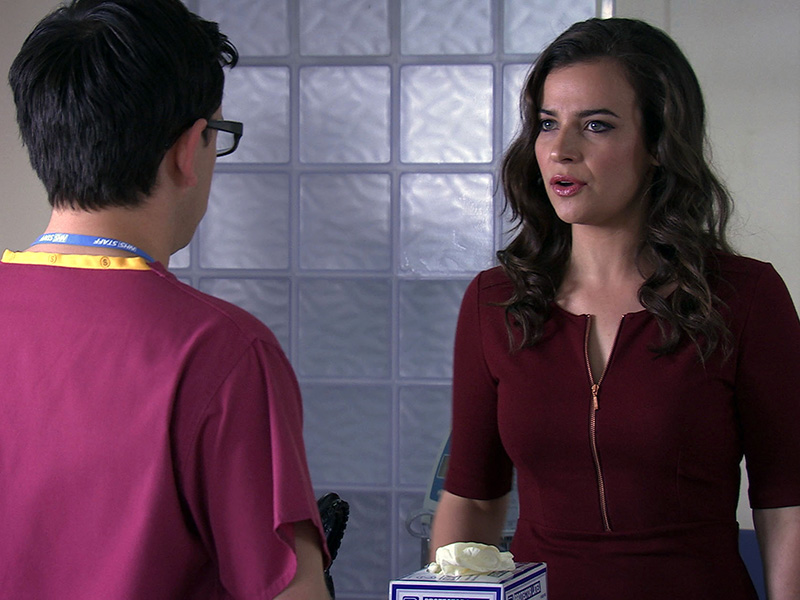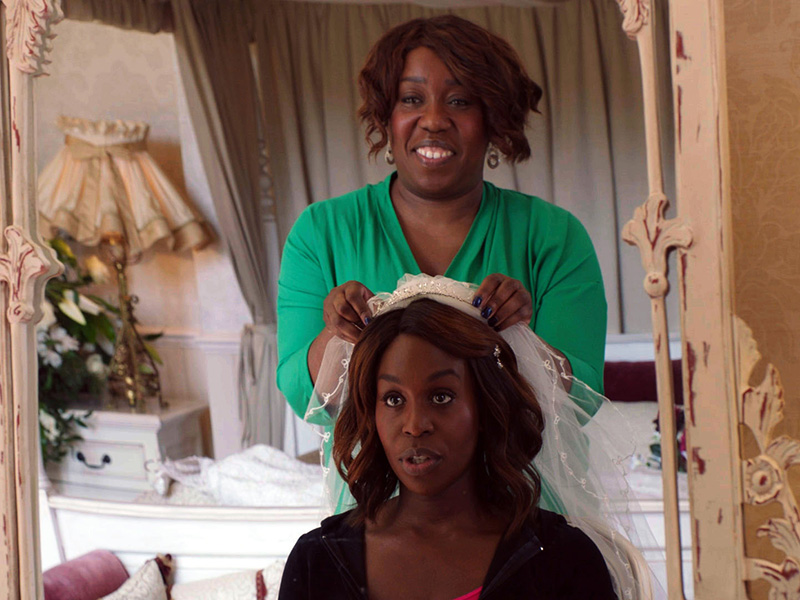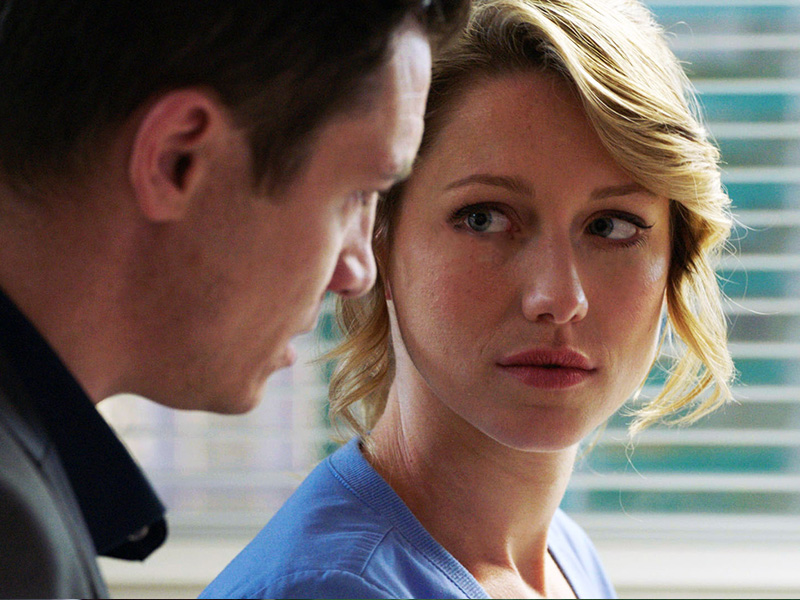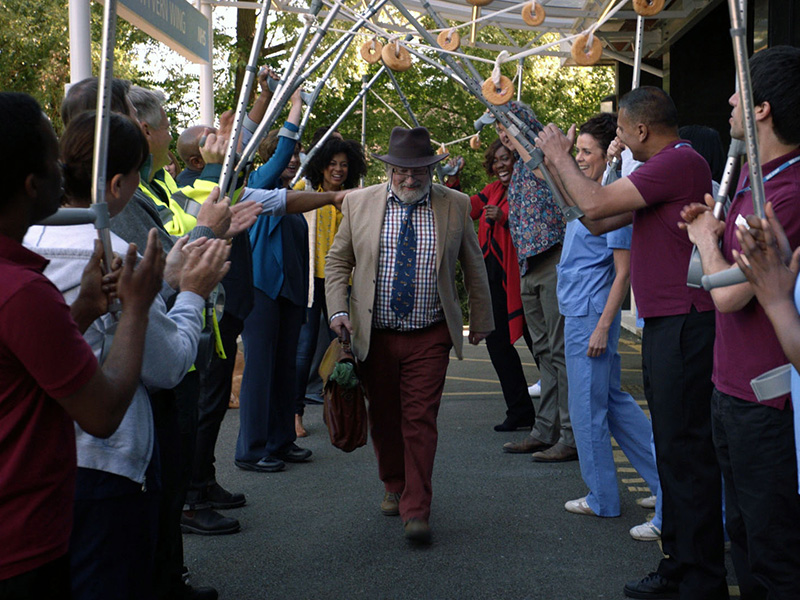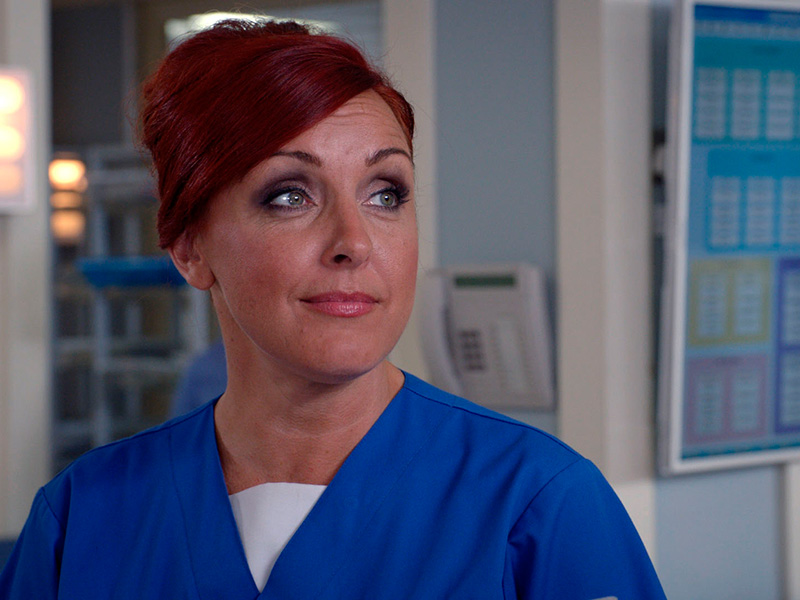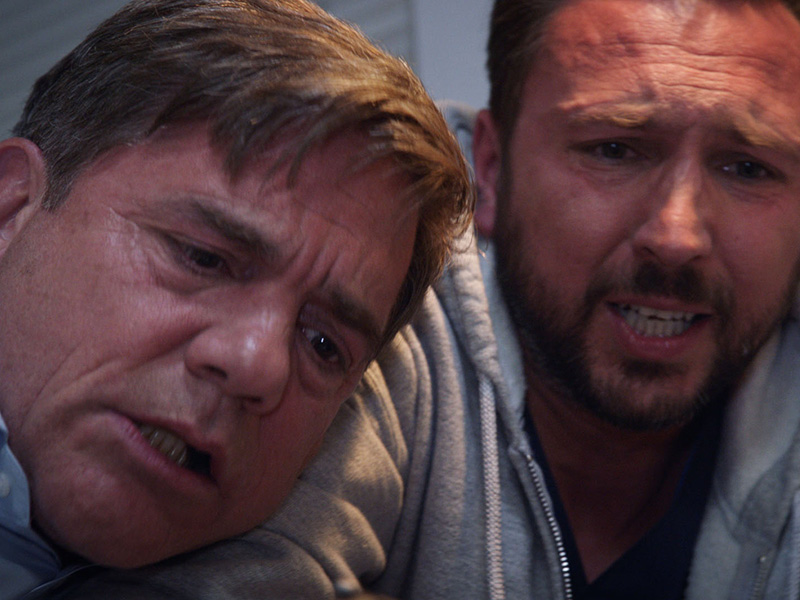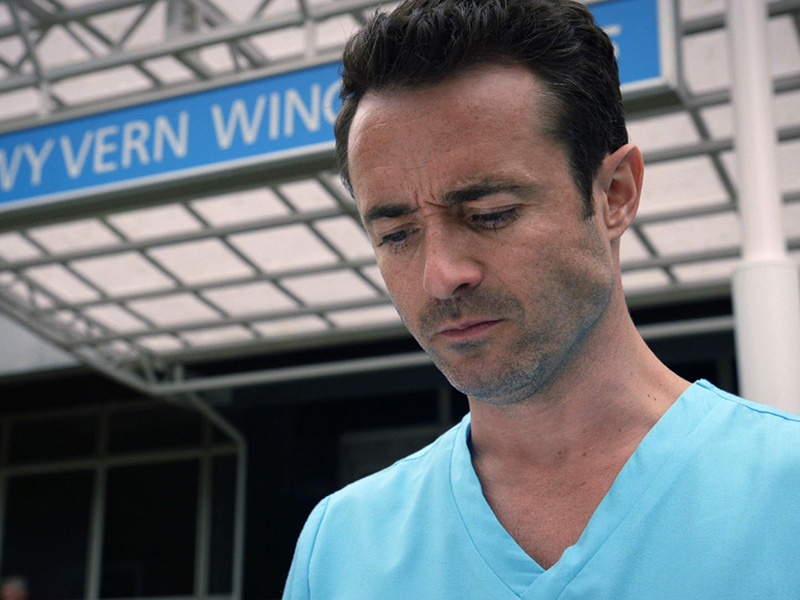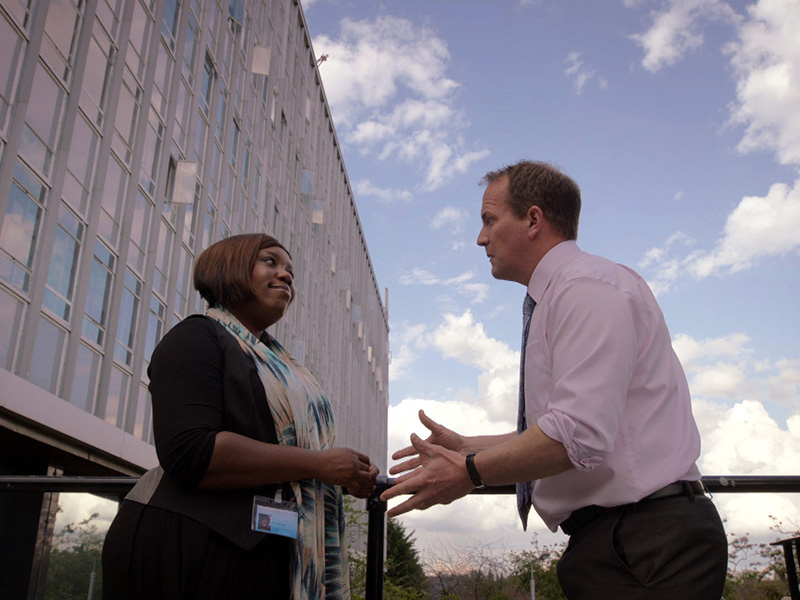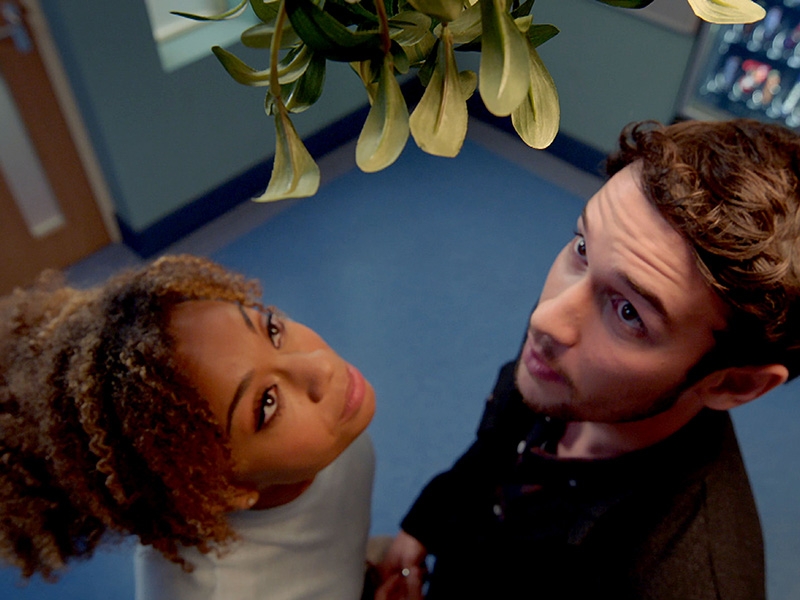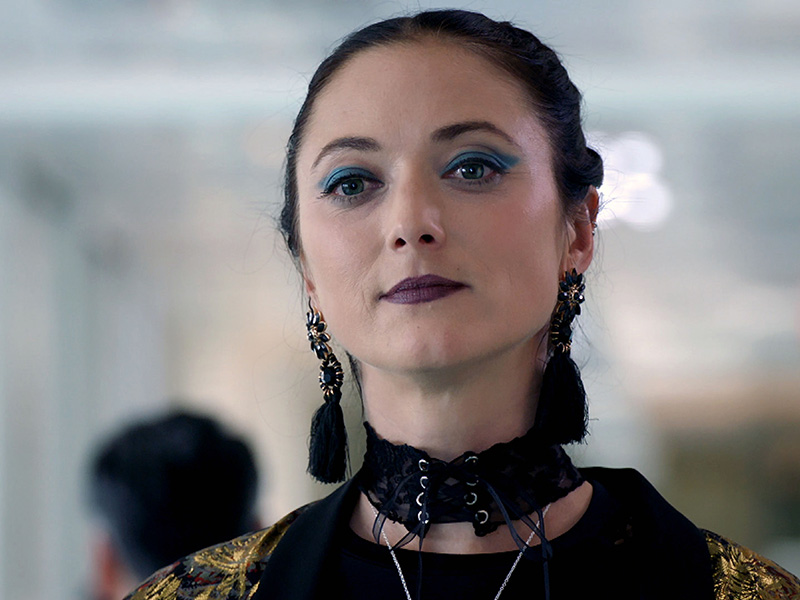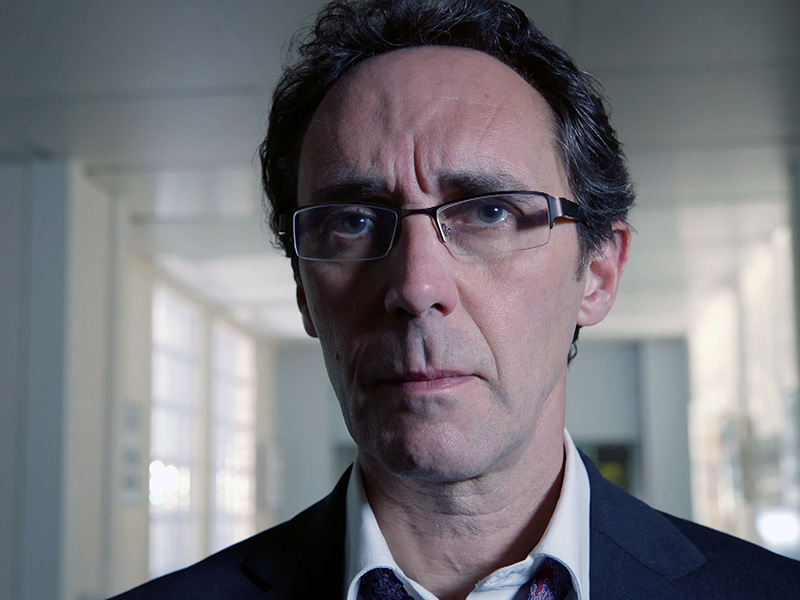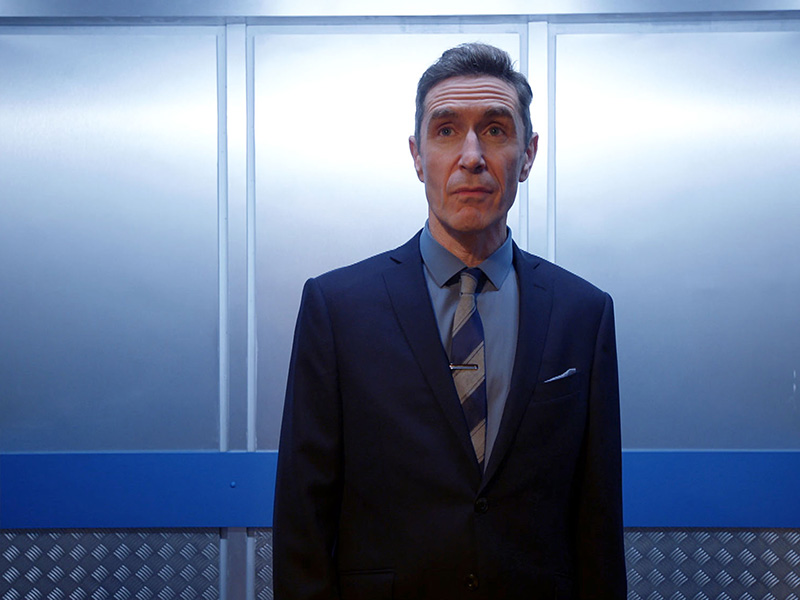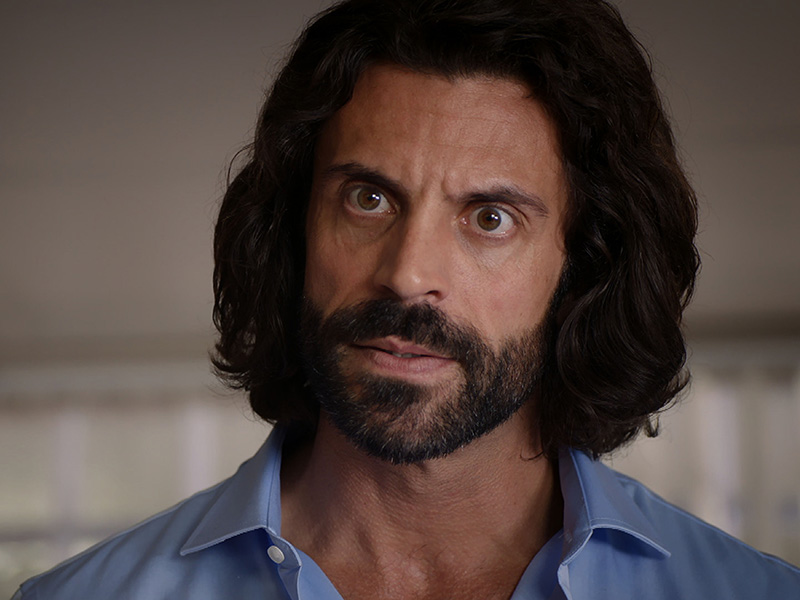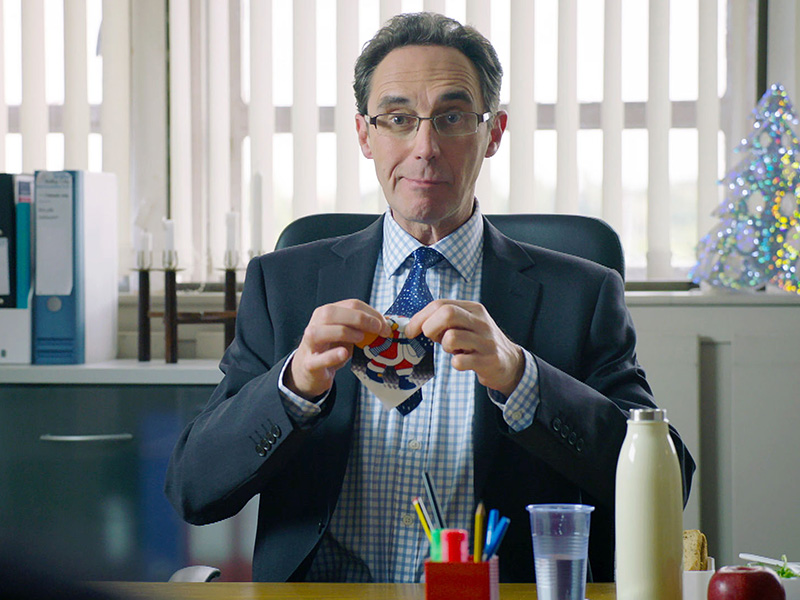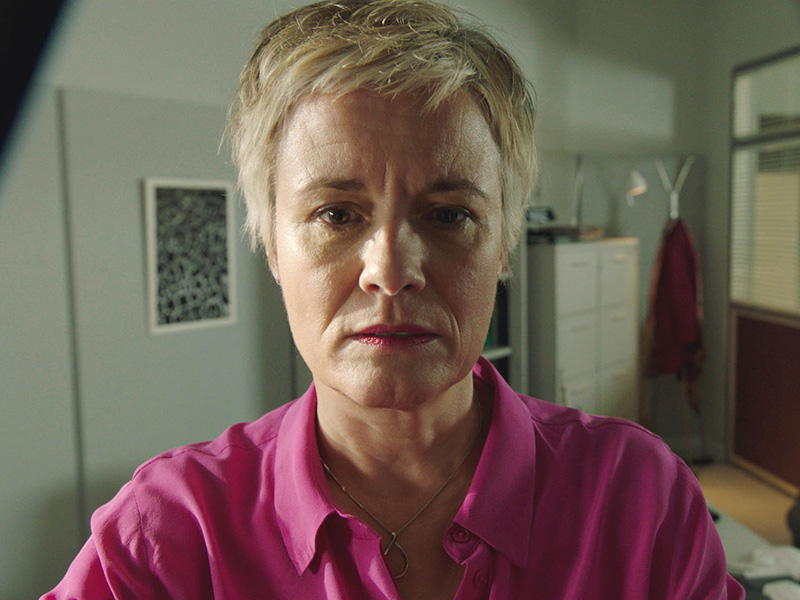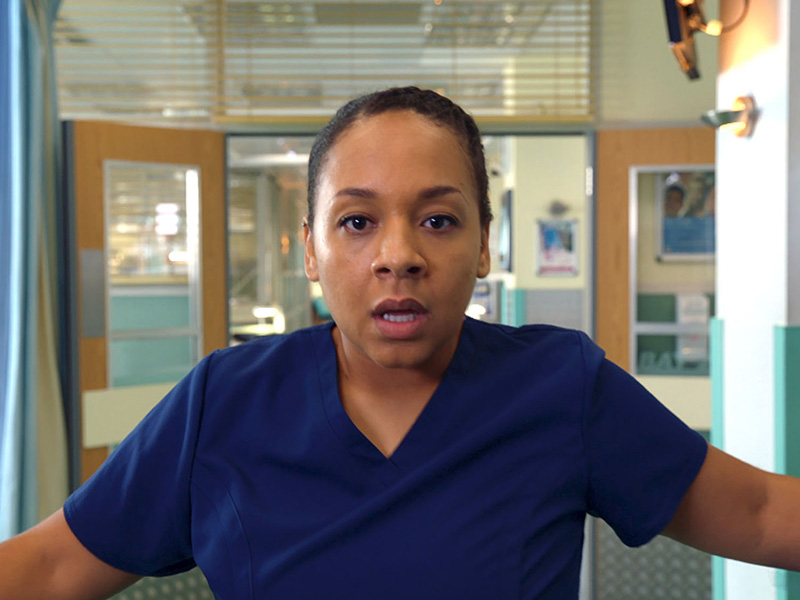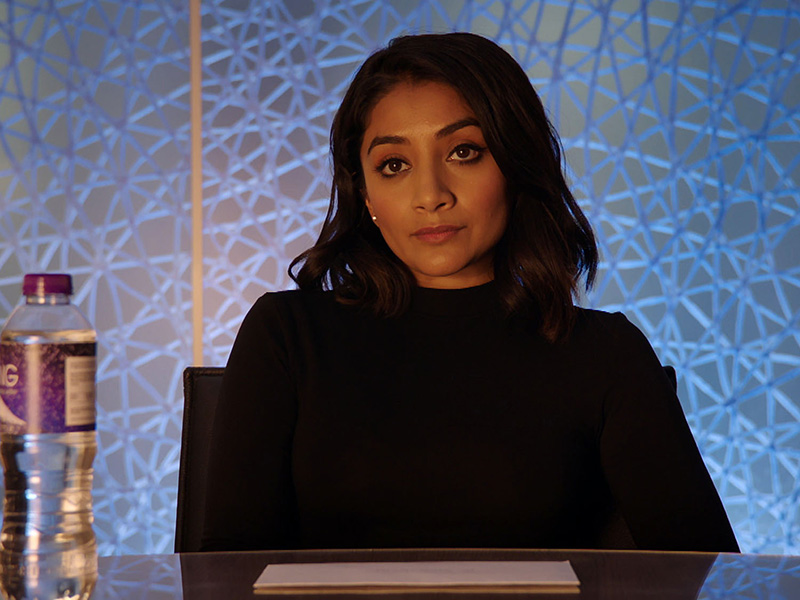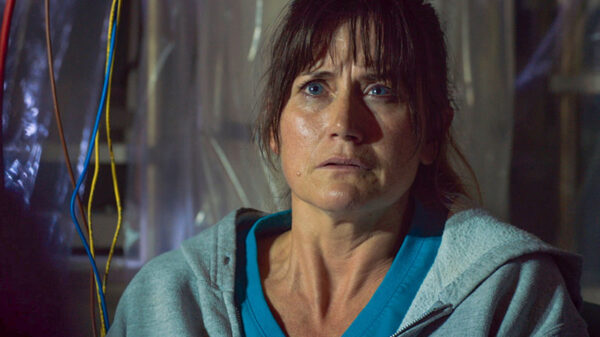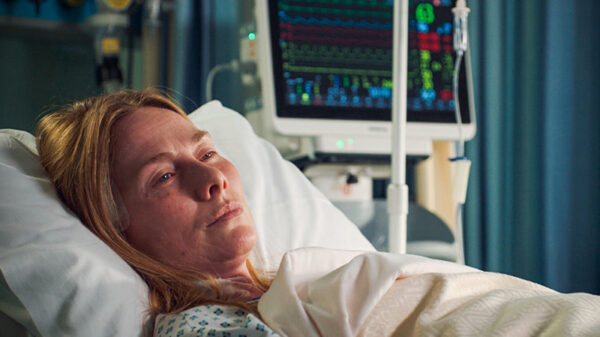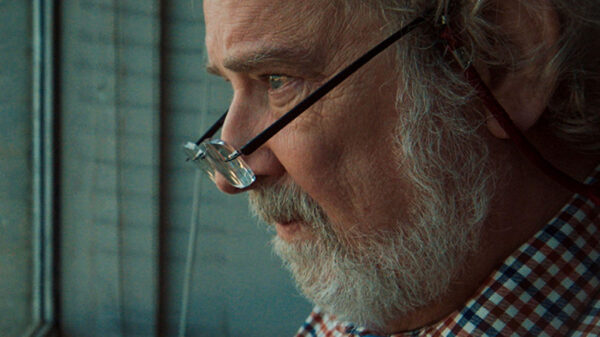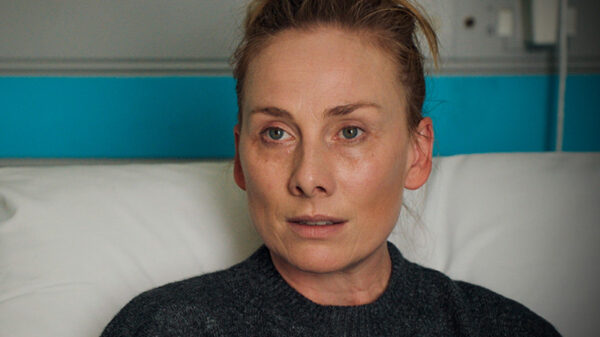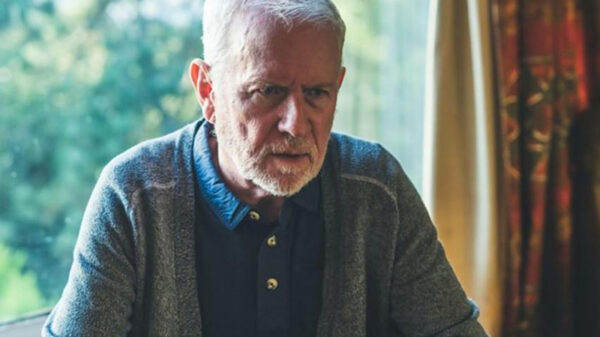Derek Thompson is the only original cast member left on Casualty, having been in the show for over twenty five years. A strong sense of old era Casualty has been created recently since the return of Patrick Robinson, who played Ash in the 90’s and Derek is pleased to have him back on the team.
Derek talks to holby.tv about what it’s like working on the show and his continued enjoyment, playing iconic Charlie Fairhead.
It must be great working with Patrick Robinson (Ash) again?
I don’t need any Christmas presents this year! When we worked together; the kind of cycle of the change of regulars in the show is like a family growing up and moving on and each of those generations actually has its own distinct character. The one that we were in together previously, I think had more than its fair share especially with Robson Green around, and Nigel le Vaillant. I think we were all a bit of a handful for the directors! We had a great time doing it, and we’re actually very lucky with the stuff we’ve got that brings Ash back. It hasn’t been on the nose and exploitative – they’ve left room for us to find it and to give a hint of knowing each other so well that we can be quite risky with each other.
There’s a pride in me almost like a father’s pride, a family notion of the pride in achievement and seeing the attitude they’ve given him which is a development in all that was there previously but it feels like it’s a well thought out maturity.
Do you think the show is not as political as it was back then?
It’s not so overtly political in that they don’t actually get people standing on tables holding Marcusian rapture which is what Charlie’s done in the past but if you’ve looked at the number of things they’ve hung on the Charlie costume honestly you wouldn’t see my face in the end! But you can do that in continuing drama by trusting that the actors will do it in a gentle but well stated way rather than running at a notion like the character has this or that problem and they’ve always, on this programme, been quite sensitive to the idea that they are reporting a current affairs element, on society and state of the NHS. There have been times when I think the BBC went through a culture of really pitching itself hard up against the independent companies for an audience and simply judging things on bums on seats and in doing that, what they did was say goodbye to a few of the risks that they would take in applying real political analysis because they wanted to spend their time on grinding the story along as fast as they could. That proves actually to be a good way of building and holding an audience but in the end I think you do have to understand the nature of the beast that you are creating. It’s naturally in the nature of Casualty – it has to report back on the NHS, so I actually find that the way the political analysis is expressed is softer these days but actually though, it gets at the audience by a process of osmosis.
I think, rather showing the effects of changes and what people deem to be failures in the NHS on the characters rather than the characters being politically pro-active. That is kind of a hangover but a choice that’s been consistently made from the days when they really kind of gunned out the soap opera notion.
One tends to think you have a natural tendency to the conspiracy theory. I do think it’s by far the most interesting way to look through life. So we tend to think if Casualty has done this or become that it’s because these people have got together and decided but generally that’s not true. Generally what happens is you getting an Executive Producer who’s appointed, who will appoint a Series Producer and the two of them will be pretty mind like but the Executive will normally say from top down, here’s what I want. So rather like an old fashioned film crew producer they have that kind of clout and they tend to use it. They will impose a tone, a style and the machinery and organise the machinery of presenting their vision. I think people still do get the sense of Casualty being based on a real world but they also like the idea of there being that slight exaggeration here and there. That is maybe playing in one episode quite hard hitting, shocking realism and the next episode you may find David Brent creeping in so I think there is a pretty wide brief to the writers also; the point of the village pump where and then it gets gradually shaped after that. But I think you’re right that when I think back to those days, there was really quite a mission on all fronts to put the political analysis right up front and that was very enjoyable except when you bumped into someone really right wing on the tube who would give you a hard time for it!
Have you had many encounters like that?
No I haven’t actually but I have had a few encounters from years ago that taught me how unpleasant it can be to be disliked by an audience – when I seemed to have cornered the market in playing pre-IRA bad boys. I did a couple of really nice series, one called Harry’s Game which was beautifully produced and another called The Price and a film all within 18 months. I also did a play at the National Theatre which was about the struggle in Northern Ireland and the conflict and a few times, I actually got a very nasty reaction. Once in a pub with a mate in Camden where a woman came up to me just after Harry’s Game was screened and said ‘I’ve got a wee something I’d like to say to you!’ I thought that doesn’t sound like a happy tone of voice and I said feel free to say it. She said ‘I just hope your f***ing well proud of yourself!’ and spat on me and walked off. I immediately thought that is genuine hate – she’s not treating me like an actor, she’s treating me like the character I was – it’s delusion but a lot of television encourages that. What surprised me actually was that I didn’t feel fearful or that I’d been got at or that this was a criminal act, I actually felt really sorry for the woman. I thought only one thing could drive you to do that and that is grief and pain. The woman had obviously lost somebody or her family had been damaged somehow because of the troubles and that was her, she didn’t physically hurt me, she was quite shaken by seeing me.
Do you feel you have a responsibility in depicting real-life medics?
We say that often enough to ourselves. I think we’ve got to know people in the profession in the NHS over the years that actually sometimes quite shock us when the response you get sometimes is don’t be stupid I know someone exactly like that! I think we all feel a responsibility; I’m one of the lucky ones in that my role model is actually the Series Medical advisor Pete Salt, who is aptly named. The salt of the earth, he’s wonderful! He’s been with the show from day one, he was our first medical advisor and he’s the guy that Charlie was modelled on because the two writers, divisors (Paul Unwin and Jeremy Brock) who were both in hospital at the same time and met each other in the Bristol Royal Infirmary. They were discussing what would be a good idea for popular TV and then they had the light bulb moment, looking at what was around them, looking at these stories because that’s what’s essential to a good serial drama. It’s that village pump, the stories come to, the people exchange their stories, which is why a police station is always a popular one but no one had done a hard hitting medical drama for years. So they went and asked to speak to someone who could talk about it, they trailed a surgeon or a charge nurse for the day, most of them said they were too busy and then they met Pete Salt who said ‘Yeah come on, it’s great down here, News of the World has got nothing on us! Come and have a look!’ So they did and spent a day with Pete. They then realised for their drama, they wanted this guy to be the maypole that the other characters revolve around. You don’t need to see that much of him and if anything he’s quite a kind of master of ceremonies. You don’t get personally all that close to him but you get indications of what his nature is and that’s how Charlie started.
I went up to be interviewed for the job and my mother had just been in hospital having a radical mastectomy and I’d been looking after my dad. I got a break from another job I’d been doing for the BBC, coincidentally down in Bristol called Fighting Back. I got the tug to come up and meet Geraint Morris, another wonderful man, to talk about this and the casting director gave the spiel that these characters were warts and all, not angels, they’re people and some of them have quite a hard nosed attitude to the world. I said stop right there I’ve just been in a cancer ward, seeing my mum and watching the lead nurse dancing the hokey cokey with her and her best mate on the ward the night before they went in for their op. I’ve seen these nurses looking after patients – they are bloody angels, they’re heroes, they’re wonderful! The job they do and what they give to it. Geraint Morris and Mike Bartley, I remember the looks on their faces where they both looked at each other with glee thinking ‘Give us some more of that!’ So that’s what actually got me the job. It’s an actors dream and if there’s a bit of script that I think is uncharacteristic I can very easily turn to Pete Salt. It’s been a very happy and lucky job for me and the feeling of responsibility to represent the NHS truthfully and in light of my own opinions on the service has become easier for me over the years because I don’t feel the burden that it used to as I feel more now that I know it
It’s also part of our job that we’re creating entertainment, you have to stretch things a little bit too, you can’t be hard and fast, you have to be inventive, to entertain the audience and give them more of a ride. Directors can really help with that, some are classic, social realism with a kick to it and you get others who really like to get in there with hand held stuff and stitch three scenes together and it makes life so much easier for us. The camera suddenly becomes a character, it puts the viewer right in the middle of it, in that style, so it’s moments like that you can take real risks where it’s not actually in the script but you can react to something that say Patrick [Robinson] says but in the right circumstances and direction I can take that as far, almost like as bold as comedy.
Having been on the show for over 25 years, you must still enjoy it?
It sounds trite but it’s absolutely what is in the centre of my enjoyment, which is the teamwork. I can’t play rugby, or football, cricket or tennis not me either – this is the team game that I love. It’s walking in there where everybody, no matter how much you’ve done or what age you are or how bright your mind is or how good your attitude is – you’re always just as good as the scene you’ve just done. The next scene you come into, you are that far from complete disaster, humiliation because you take it all for granted and it motors along, – so when you get on that floor with a bunch of mixed ages and experiences, you go in there and say, it’s the gang’s show – what we going to do with it! And it’s great to see, much more these days than in the past that the kids come onto the Set and they express themselves, they’re not afraid of their own voices because they belong to much more of a television culture, it’s kind of demystifying for them but this has always been a good team. I think because of the way Geraint Morris set it up. He was a man who was a people person and who was generous, not to a fault.
This is the team game that I love!


